We aim to build partnerships with communities wherever we operate. We establish community based volunteers to work with us and help manage the social impacts of our business activities, address concerns associated with our operations, and ensure development opportunities are provided.
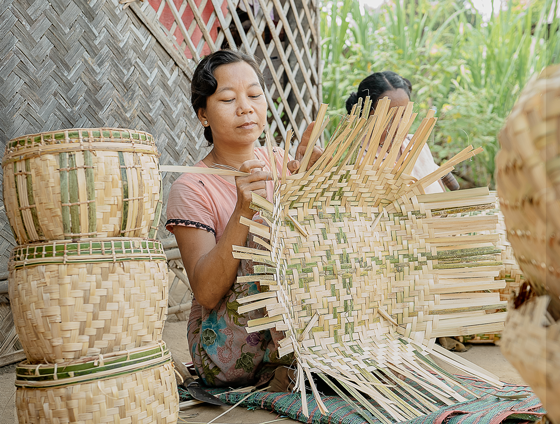
COMMUNITY INVESTMENTS
MPRL E&P recognizes that strategic community investment projects should provide value for the company and impact the community positively. As a result, MPRL E&P aims to contribute to the sustainable development and improved livelihoods of communities where we operate through active engagement and regular dialogue. This approach reduces risks, provides a social license to operate, and most importantly delivers business value for MPRL E&P. Our business objectives for community investment include building relationships and enabling employee engagement.
To support this approach, MPRL E&P encourages surrounding communities to participate in, and contribute to, the various discussions to address community needs where we operate. Our community investment initiatives aim to engage with and support local communities where we operate. We do this through:
- Having an effective functioning grievance mechanism
- Investing in sustainable livelihoods (education, capacity development, and vocational training)
- Improving well-being (improve access to water, sanitation, hygiene, health, nutrition, and safety culture)
- Partnerships with local groups
OUR STRATEGY
All MPRL E&P community investment and development projects must be strategic in that they address risk and impact resulting from our operations and have a rational basis for investment. Key methods such as continuous community consultation, stakeholder engagement, and identification of social impact and community needs help guide our business decisions and enable us to proactively address any community concerns. Outcome and impacts of all social investments are measured to indicate significant change.
OUR MANAGEMENT FRAMEWORK
Human rights, environmental management, communication, as well as community investment and development inform MPRL E&P’s social management system. MPRL E&P’s Community Investment Policy, CSR Policy, and Human Rights Policy influence how we engage with communities and people. The policies are consistent with internationally recognized International Finance Corporate Performance Standards on Environmental and Social Sustainability and United Nations Global Compact Principles.
The system provides for a focus on ‘needs assessments and baseline’ to gather the community’s opinions, necessities, challenges, and assets in order to determine the real needs of the community.
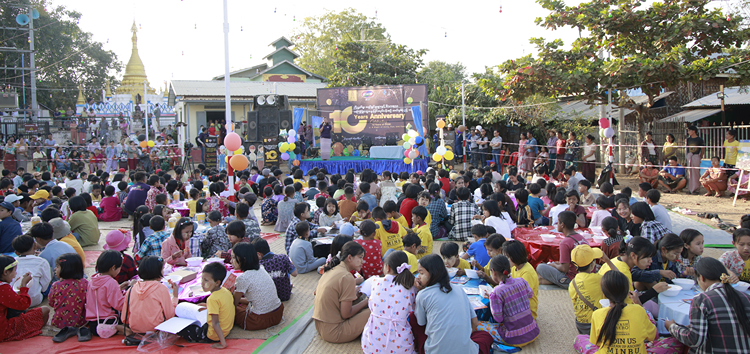
OGM at 10: A Journey of Passion, Purpose, and Progress
The United Nations’ Guiding Principles on Business and Human Rights emphasize the “Protect, Respect, and Remedy” framework. Under Principle 31, companies are responsible for respecting human rights and addressing grievances linked to their operations. To fulfill this obligation, companies should establish grievance mechanisms to receive, process, and resolve complaints from individuals, employees, and local communities impacted by their business activities.
Read moreOGM at 10: A Journey of Passion, Purpose, and Progress The United Nations’ Guiding Principles on Business and Human Rights emphasize the “Protect, Respect, and Remedy” framework. Under Principle 31, companies are responsible for respecting human rights and addressing grievances linked to their operations. To fulfill this obligation, companies should establish grievance mechanisms to receive, process, and resolve complaints from individuals, employees, and local communities impacted by their business activities.
A Decade of the Operational Grievance Mechanism
MPRL E&P values stakeholder engagement and recognizes that transparency and open communication are essential for building trust and securing a Social License to Operate (SLO). Guided by the UN Guiding Principles on Business and Human Rights, the company defines its Operational Grievance Mechanism (OGM) as a formal, non-state, preventive, and effective tool. In line with Principle 31, MPRL E&P, in partnership with Myanma Oil and Gas Enterprise (MOGE), launched the OGM in 2014 at Mann Field in Minbu, Magway Region. This initiative strengthens the company’s human rights due diligence by identifying potential adverse impacts that may not be fully captured in standard impact assessments.
Since its inception in 2014, the OGM has played a vital role in fostering positive relationships between MPRL E&P and local stakeholders by promoting open dialogue and transparency. Over the past decade, 183 cases have been successfully resolved through the mechanism, consistently meeting Key Performance Indicators (KPIs) for acknowledgment time, feedback time, and case closure. Notably, the OGM has achieved a 100% satisfaction rate for both its process and outcomes, reflecting strong stakeholder confidence in how concerns are handled. This high level of satisfaction demonstrates that community members trust the mechanism and are pleased with the resolutions provided by MPRL E&P.
Setting a Benchmark for Trust and Accountability
In partnership with MOGE, MPRL E&P implemented the OGM through a multi-stakeholder approach, making it the first mechanism of its kind to be jointly managed by the host community and the company. This model of inclusivity, accountability, and mutual trust was introduced across 14 communities surrounding Mann Field between 2013 and 2014. Since then, the OGM has become instrumental in advancing MPRL E&P’s Environmental, Social, and Governance (ESG) objectives in field operations.
Grounded in key principles such as accessibility, transparency, fairness, accountability, and harm prevention, the OGM upholds human rights while fostering trust and long-term stakeholder relationships. By adhering to these values, the mechanism serves as a crucial bridge between the company’s operations and the communities it impacts.

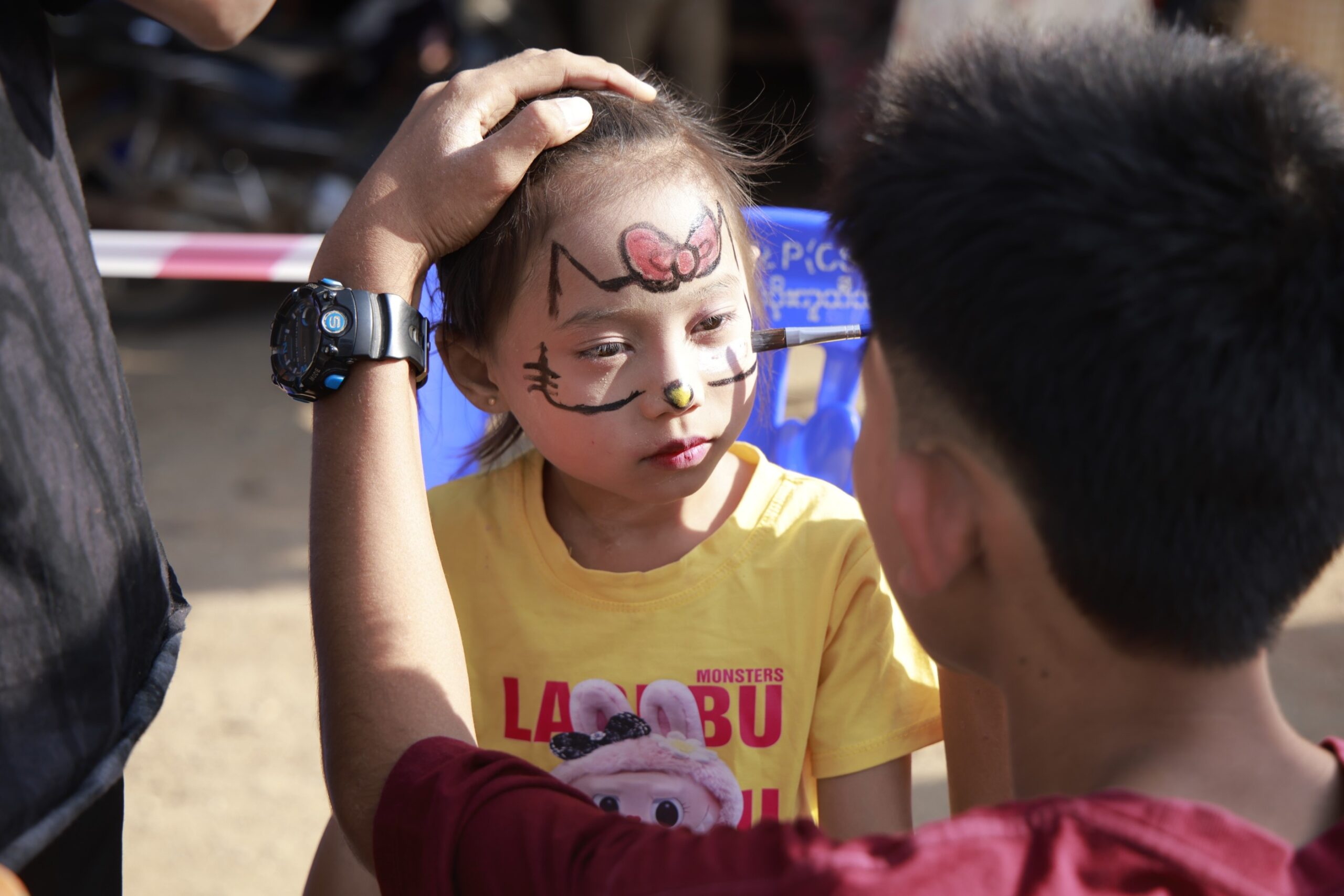

Milestones of Success
The 10-year OGM Anniversary Report, published in January 2025, highlights key achievements that have shaped MPRL E&P’s decade-long commitment to transparent and effective grievance management:
- Piloted the OGM in three villages before rolling it out to all 14 villages in Mann Field.
- Established Key Performance Indicators (KPIs) to measure the mechanism’s effectiveness.
- Trained community volunteers in stakeholder engagement and OGM processes.
- Conducted annual community awareness campaigns and knowledge, attitude, and practice (KAP) surveys to assess impact.
- Published quarterly OGM reports in both English and Myanmar, assessable on the company’s website.
- Broadcasted an OGM documentary on government media.
- Introduced a CSR Open Day and launched additional KAP surveys.
- Adapted the mechanism to address challenges arising from the pandemic and environmental changes.



Celebrating 10 Years of the Operational Grievance Mechanism
This milestone marks a decade of implementing the Operational Grievance Mechanism in Mann Field—an initiative that has reshaped MPRL E&P’s approach to operations, sustainability, and stakeholder engagement. Over the past 10 years, OGM has become a cornerstone of our commitment to addressing grievances effectively, fostering collaboration, and driving meaningful change.
To commemorate this achievement, MPRL E&P published the 10-year OGM Anniversary Report in January 2025. This report reflects the collective efforts of teams, stakeholders, and partners who have contributed to the mechanism’s success. It highlights key milestones, lessons learned, and case studies demonstrating the OGM’s impact. Additionally, the report explores how the mechanism has enhanced operational efficiency, environmental stewardship, and stakeholder partnerships while setting a vision for its next phase of growth and continuous improvement.
As part of this celebration, MPRL E&P’s CSR & Communications Department developed an OGM comic book, offering an engaging and assessable way to understand the process and implementation of the mechanism. Both the report and the comic book are now available on the company’s website.
A Night of Unity, Fun, and Family
To commemorate this milestone, MPRL E&P hosted a special community event, “A Night of Unity, Fun, and Family: A Decade of the Operational Grievance Mechanism,” on 25 January 2025 in Aye Mya Village, Mann Field. The event celebrated a decade of achievements, highlighting the progress made while fostering a sense of pride within the local community.
More than just a celebration, it served as a platform to engage the community in a shared responsibility for future successes. A key focus of the campaign was environmental sustainability, with an emphasis on educating younger generations about the importance of sustainable practices and conservation efforts. The Field Operations, HSE, and CSR Teams collaborated closely with community volunteers and village leaders to ensure the event’s success.
While the event was primarily designed for children in Mann Field Communities, it attracted a total of 723 participants, including 415 children, reflecting strong community engagement and support.
Designed to foster community bonding and enjoyment, the program featured five key segments:
- Food and Refreshments – Free snack and juice coupons for children under 14.
- Interactive Activities – Face painting, OGM comic book reading, and coloring stations.
- Lucky Draw and Games – Engaging quizzes and prize giveaways.
- Knowledge Sharing – Educational talks on oil and gas exploration, a day in the life of a petroleum engineer, and Health, Safety, and Environment (HSE) under the theme “For the Heroes of Saving the Earth.”
- Performances and Entertainment – A traditional elephant dance by Aye Mya Village, an OGM 10-year anniversary role play by children from the mangoSTEEMS Online English Learning Program, and an animated movie night with all attendees.
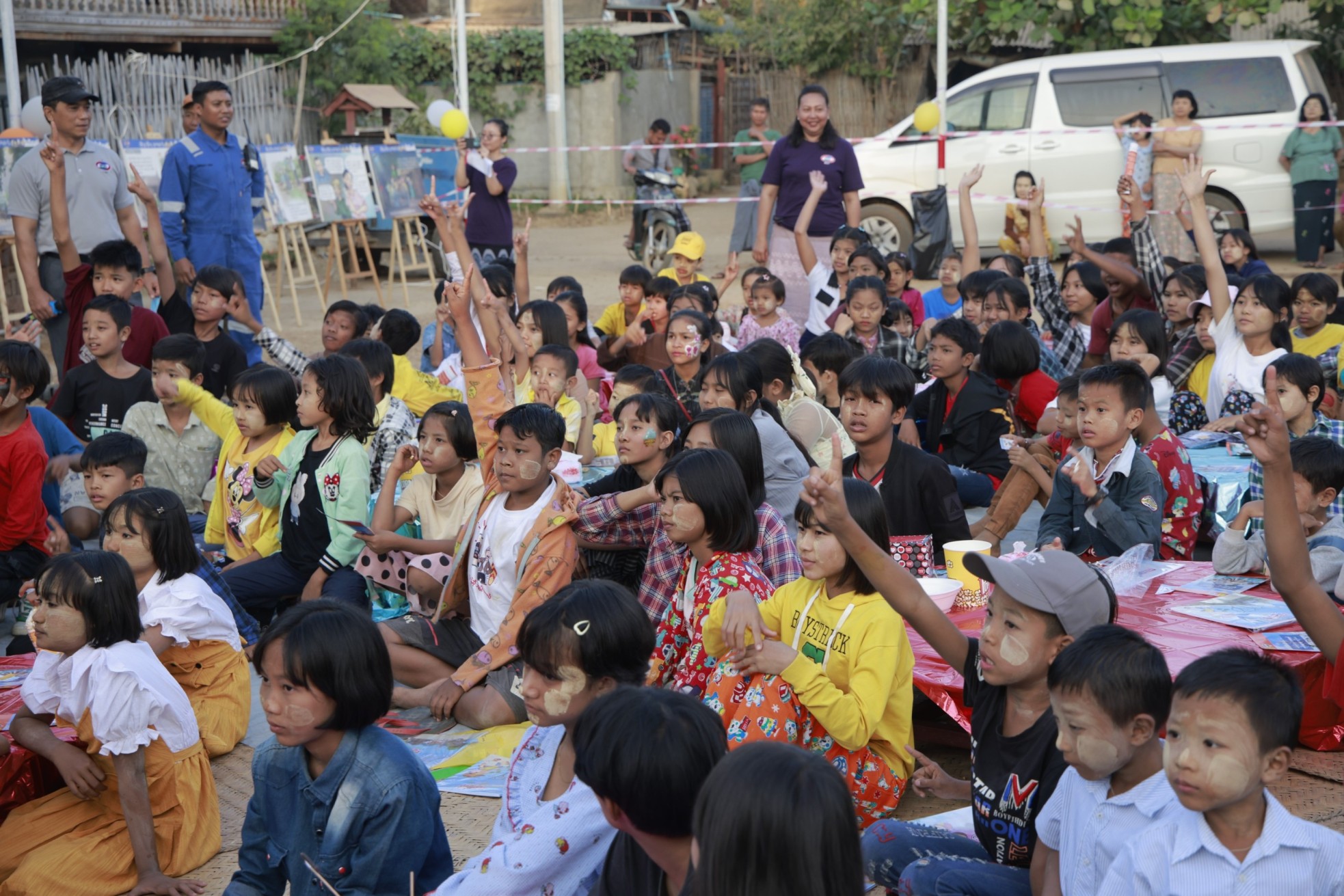
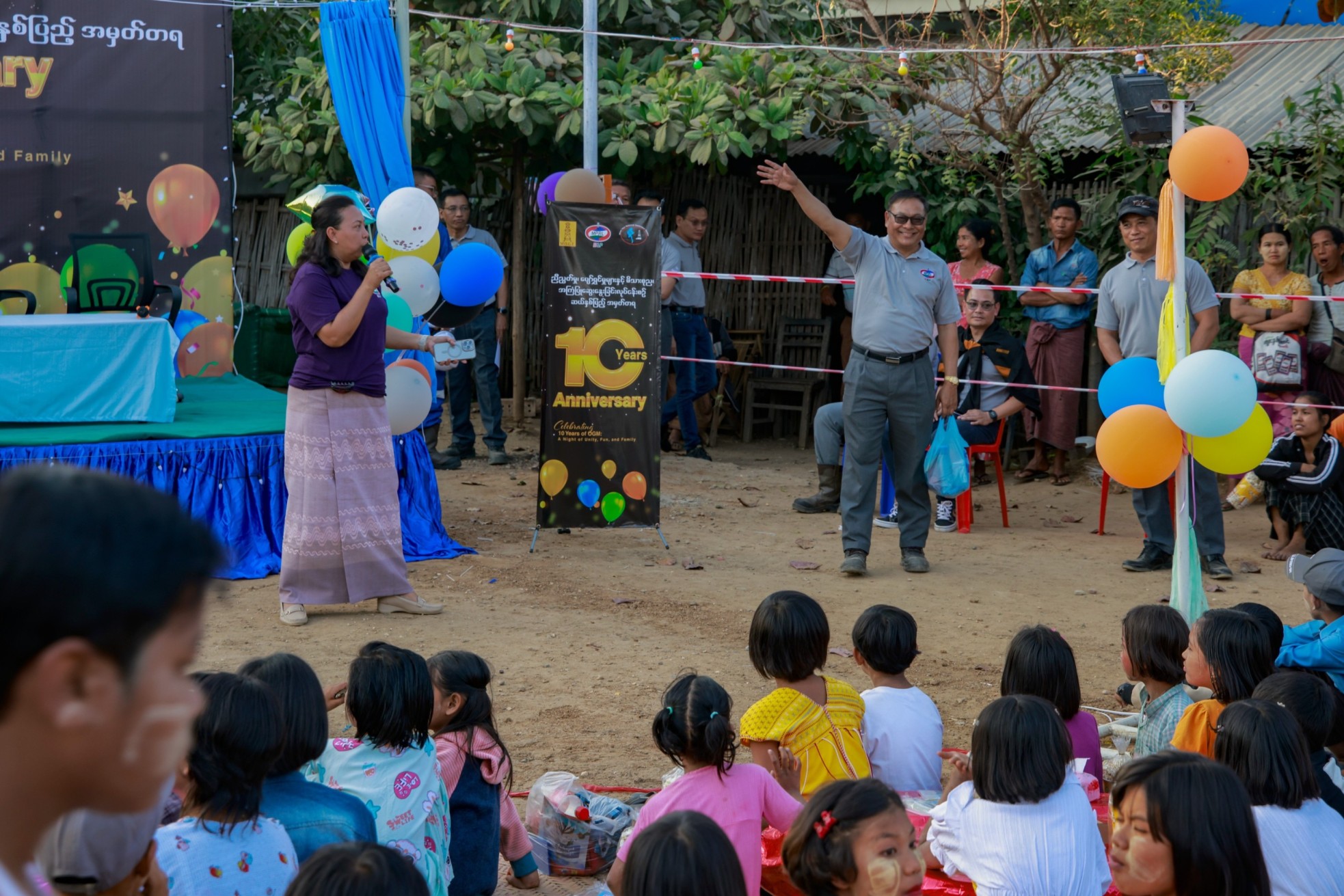
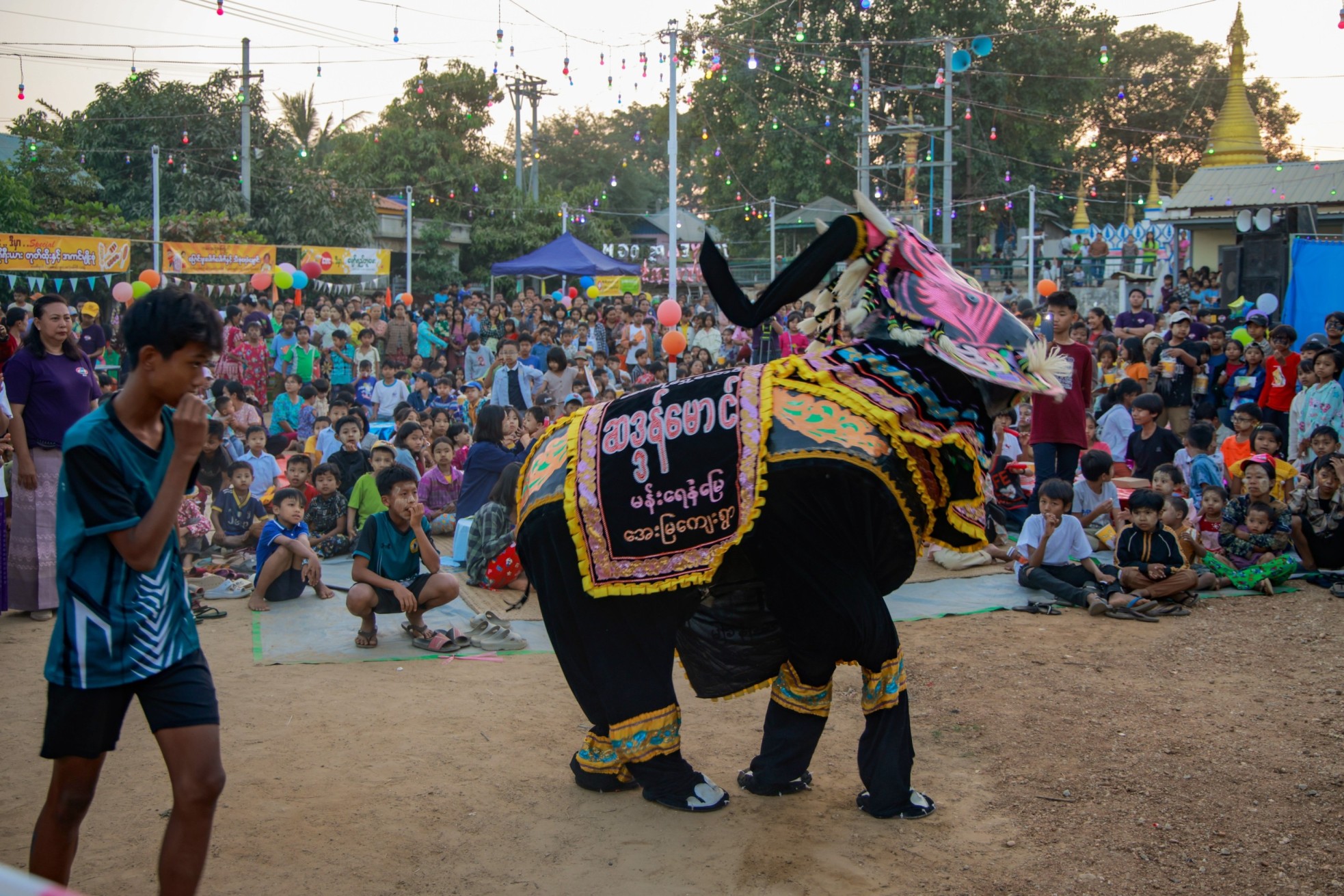
MPRL E&P’s OGM: Advancing Sustainability and Accountability
As MPRL E&P reflects on a decade of trust-building and accountability through its Operational Grievance Mechanism (OGM), the company remains committed to continuous improvement and sustainable development. By fostering transparency, addressing community concerns, and strengthening stakeholder relationships, MPRL E&P ensures that its operations align with the principles of inclusivity and responsible business practices.
Looking ahead, the company recognizes the need to align with the Sustainable Development Goals (SDGs) to create meaningful and lasting impact. Through transparent progress tracking, responsible innovation, and proactive solutions to emerging challenges, MPRL E&P is dedicated to delivering long-term value for both communities and the environment.
By embracing collaboration and continuous improvement, the company strives to secure a sustainable future—one where businesses and communities grow together with trust, accountability, and shared success.
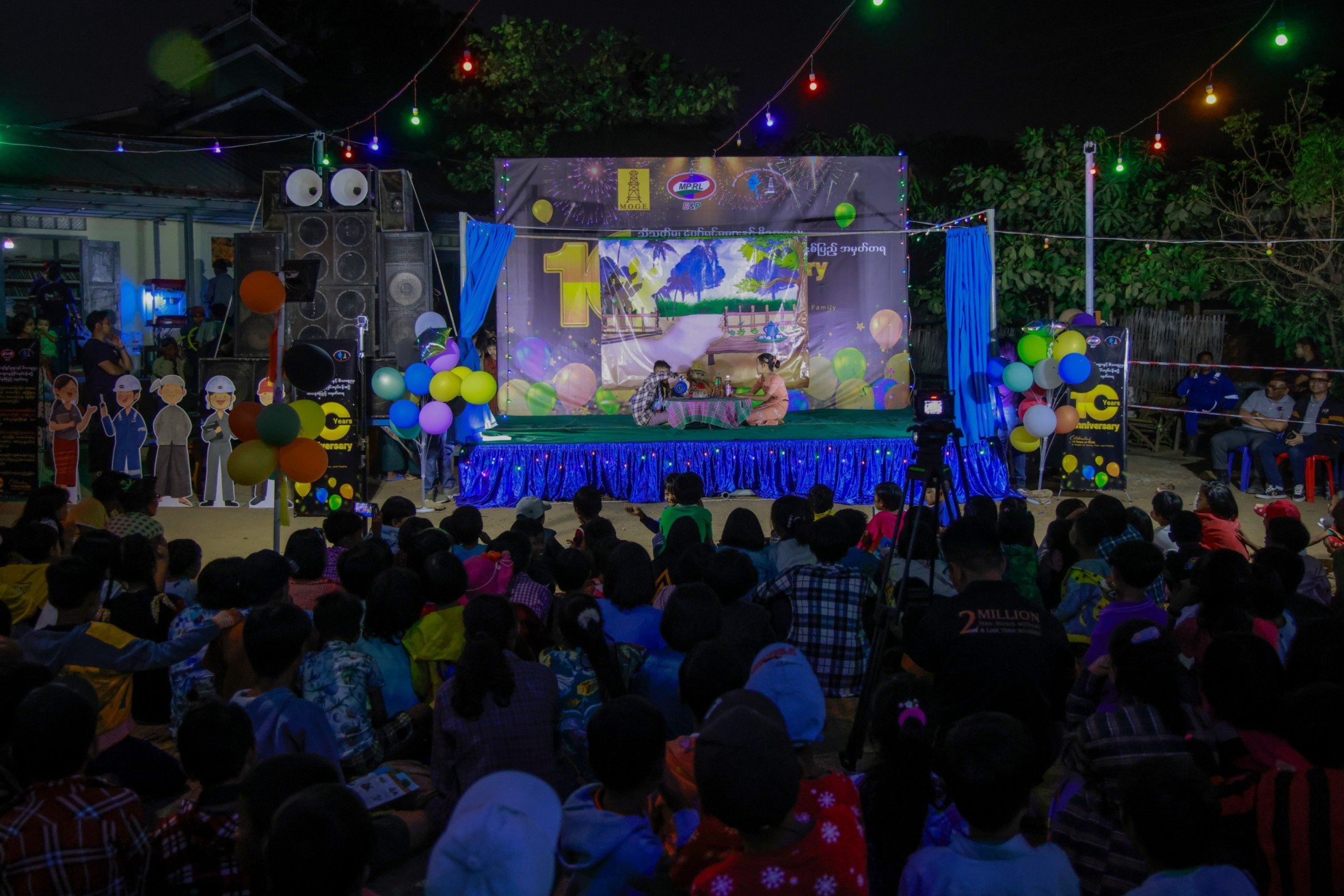
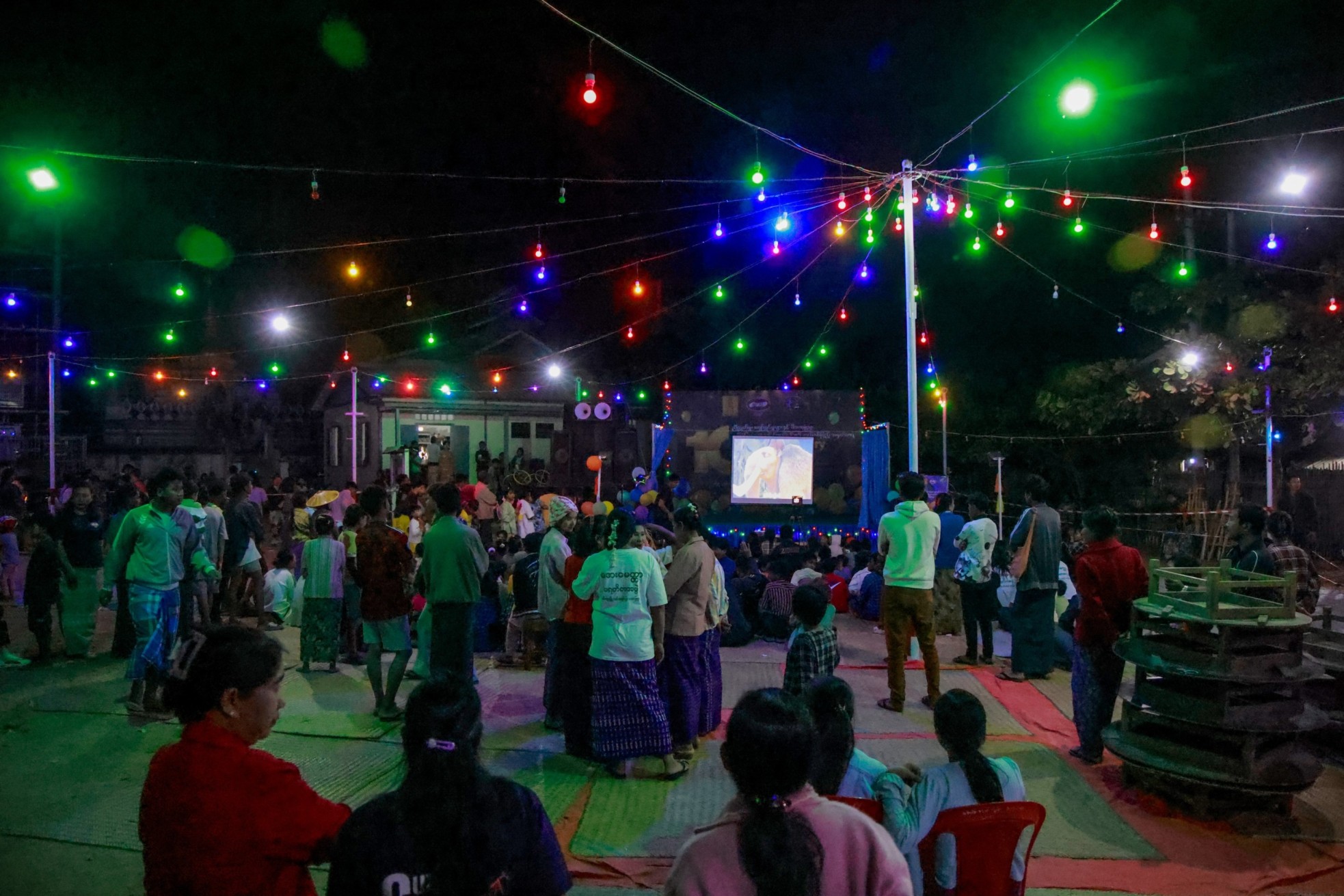
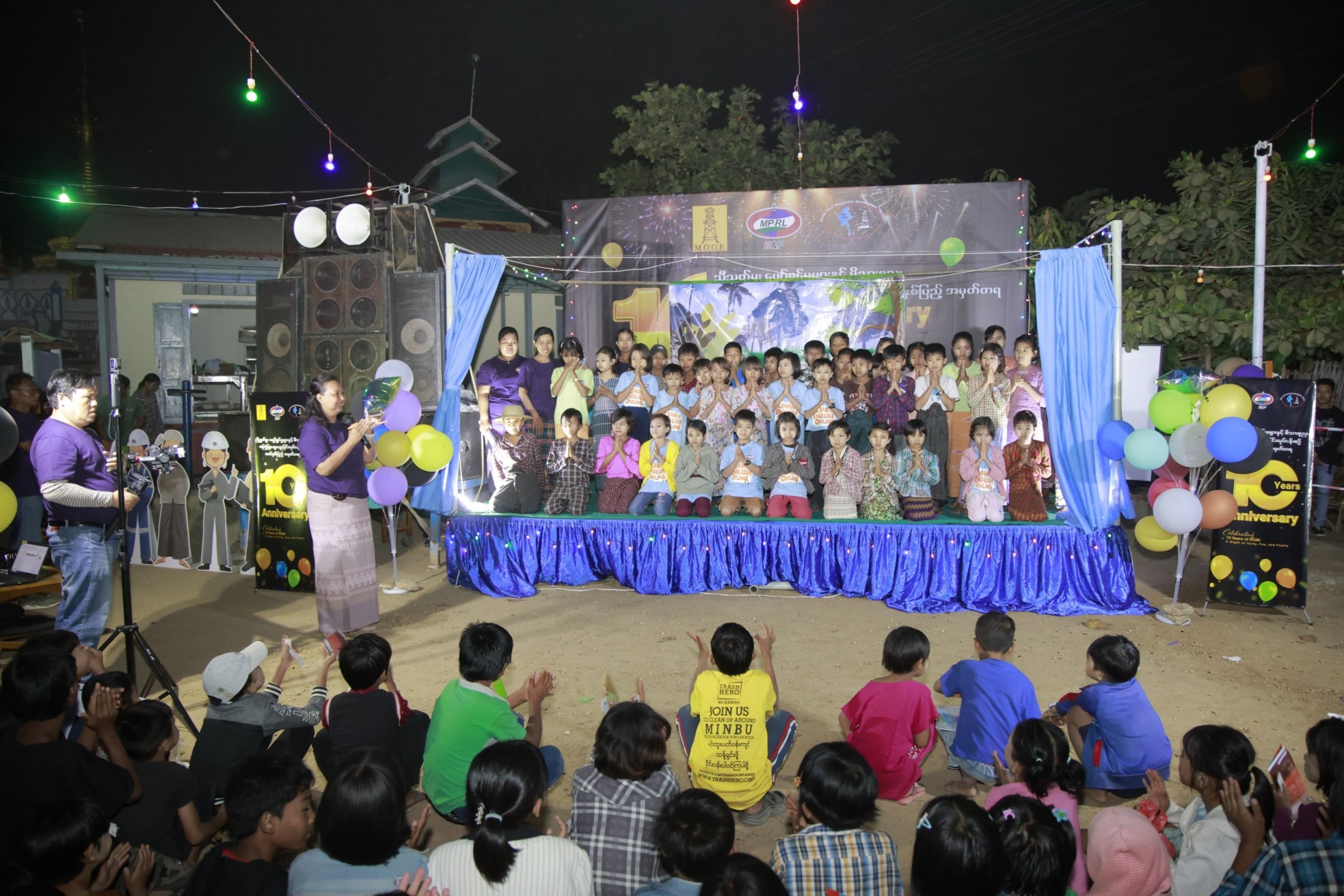
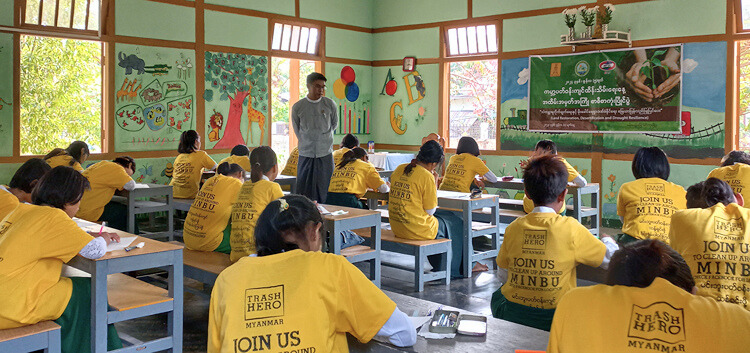
Collaborative Environmental Management: The Role of Government, Company, and Community
In the quest for environmentally and socially sustainable development in our post-pandemic society, stakeholder collaboration is essential. Proactive engagement between governments, businesses, and local communities can lead to impactful and lasting solutions, recognizing that sustainability is not just a compliance issue but a shared goal requiring concerted efforts from all stakeholders.
Read moreCollaborative Environmental Management: The Role of Government, Company, and Community In the quest for environmentally and socially sustainable development in our post-pandemic society, stakeholder collaboration is essential. Proactive engagement between governments, businesses, and local communities can lead to impactful and lasting solutions, recognizing that sustainability is not just a compliance issue but a shared goal requiring concerted efforts from all stakeholders.
Maintaining a collaborative relationship with environmental regulators and local communities is a key pillar of a company’s commitment to environmental stewardship. This cooperation strengthens the company’s social license to operate—gaining the trust and acceptance of local communities and the general public. This approach is particularly crucial as environmental regulations become more dynamic, changing in response to new scientific findings, political shifts, or public pressure. Ongoing cooperation allows companies to stay informed about potential regulatory changes and adapt their practices accordingly.
The Power of Collaboration: Leveraging Collective Strengths
Collaborative partnerships bring together diverse perspectives, expertise, and resources to tackle complex environmental challenges such as waste, biodiversity and carbon emissions, which no single entity can solve alone. Businesses, government agencies, and local communities each bring unique strengths to the table:
Businesses:
- Innovation and Resources: Businesses drive sustainable practices and technologies across industries. They can implement sustainability measures within their operations, supply chains, and products/services, driving positive environmental and social impacts while realizing long-term business benefits.
Government:
- Regulatory Frameworks and Support: Governments enact policies, regulations, and incentives that shape sustainable practices. They establish frameworks for environmental protection, set emissions targets, and provide funding and support for sustainability initiatives. Government involvement is crucial for creating an enabling environment for sustainable development and ensuring that collective efforts align with broader societal goals.
Communities:
- Local Knowledge and Participation: Communities contribute to the effectiveness and sustainability of environmental efforts through local knowledge, fostering participation, and building partnerships. They engage in educational activities to build capacity and knowledge about environmental issues, fostering a culture of sustainability.



Case Study: MPRL E&P’s Environmental Collaborative Partnerships in Action
MPRL E&P exemplifies this collaborative approach by working closely with the Environmental Conservation Department (Magway Region) under the Ministry of Natural Resources and Environmental Conservation. The company integrates environmental considerations into its core strategies and operations, shifting from minimal environmental efforts to comprehensive, strategic practices.
In this process, MPRL E&P has intensified its cooperation with the ECD by:
Ensuring Ongoing Compliance
An Environmental Compliance Certificate (ECC) ensures regulatory adherence, environmental protection, and sustainable operations while enhancing corporate reputation and stakeholder trust. They require companies to implement measures that minimize their environmental footprint, including pollution control, waste management, and resource conservation.
MPRL E&P submitted an official request to extend the ECC for the Mann Field Enhanced Oil Recovery Project ahead of the official expiry date. By seeking a timely extension of the ECC, MPRL E&P demonstrates its commitment to meeting environmental standards and ensuring sustainable operations in Mann Field.
Transparent Oversight
Facilitating inspection tours and providing comprehensive environmental monitoring reports to the ECD ensures transparent oversight and continuous improvement in environmental management. Inspection tours by ECD officials in Mann Field included both environmental management sites and CSR projects implemented within the surrounding communities, as well as meetings with village leaders in an open manner. These tours help ensure that environmental and social management practices are effectively implemented and maintained.
Furthermore, MPRL E&P’s bi-annual Environmental Monitoring Reports, which track progress, identify areas for improvement, and demonstrate accountability, are publicly available on the company’s website, ensuring transparent communication of the company’s environmental performance and outcomes.
Engaging the Community
Engaging the community is a cornerstone of effective and sustainable environmental management. By involving local communities in environmental initiatives, both government and corporate entities can enhance the reach, impact, and sustainability of their efforts.
To mark the World Environment Day on 5 June 2024, MPRL E&P, in collaboration with the Environmental Conservation Department (ECD) and local community, undertook a series of activities aimed at promoting environmental awareness and education. The highlight of this initiative was the erection of signposts in Mann Field, which serve as reminders and educational tools for environmental protection. Additionally, an essay competition titled “Land Restoration, Desertification, and Drought Resilience” was organized, targeting the local community, especially students. The essay competition aims to educate participants about environmental issues and encourage them to come up with innovative ideas and solutions.
Through these initiatives, MPRL E&P not only complies with regulatory requirements but also fosters a culture of sustainability and proactive environmental management. This comprehensive approach demonstrates the company’s dedication to environmental stewardship and its role as a responsible corporate citizen.
Challenges and Opportunities
While collaborative partnerships offer immense potential for driving sustainability outcomes, they also present challenges in terms of resource constraints and the complexity of environmental challenges that need addressing. By strategically engaging all stakeholders and leveraging their collective strengths, collaborative environmental management can effectively address the complex challenges of sustainability through robust governance structures, clear communications, and adaptive management approaches, leading to more resilient and sustainable development for both businesses and society.






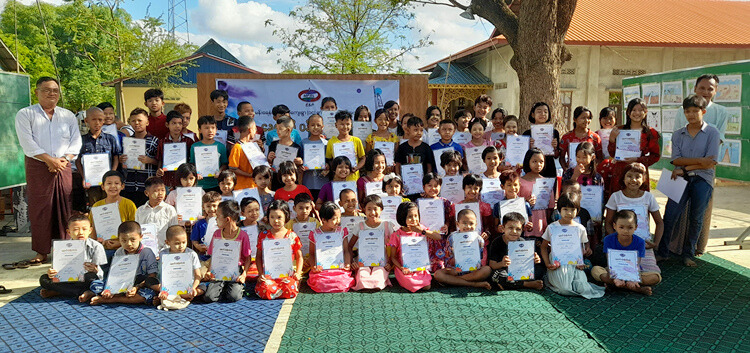
Summer Art Class: An Oasis for Children amid Myanmar’s Scorching Heat
The summer of 2024 in Myanmar has been exceptionally hot due to El Niño, with Magway Region recording the highest-ever temperature. This extreme heat poses risks to vulnerable groups, making it crucial to take precautions and avoid prolonged sun exposure. In this context, indoor activities like the Summer Art Class in Mann Field, Magway Region, offer a safe and enriching alternative for children from the scorching heat.
Read moreSummer Art Class: An Oasis for Children amid Myanmar’s Scorching Heat The summer of 2024 in Myanmar has been exceptionally hot due to El Niño, with Magway Region recording the highest-ever temperature. This extreme heat poses risks to vulnerable groups, making it crucial to take precautions and avoid prolonged sun exposure. In this context, indoor activities like the Summer Art Class in Mann Field, Magway Region, offer a safe and enriching alternative for children from the scorching heat.
To provide a constructive outlet during the summer holidays, MPRL E&P’s CSR Program organized a four-week Summer Art Class Program for children in the Mann Field Communities from 29 April 2024 to 24 May 2024. The classes were held at Mann Kyoe, Aye Mya, and Nan U Community Centers. These classes, part of the Community Capacity Building Program, aimed to foster a love for art and nurture creativity among local youth.
A total of 66 children participated in three basic art classes for ages 6-12 and one advanced art class for last year’s trainees. The program’s success from the previous year, which helped children elevate their hobby to an advanced level, encouraged its continuation into the Fiscal Year 2024-2025.
While the basic class focused on drawing with pencils and colored pencils, the advanced class introduced watercolor techniques. The advanced watercolor painting course, designed for students who completed last year’s basic class, highlighted the program’s progression. Senior CSR Officer Saw Eh Hsar Blute Htoo emphasized the program’s goal to develop children’s imagination, creativity, fine motor skills, and appreciation of nature.
Trainer U Myint Hlaing Min reflected, “Teaching art to young children involves fostering a love for creativity. Initially, they need guidance, but with the right support and instruction, all children can learn art easily. Each child’s unique imagination and creativity influence their progress.” The trainers were pleased with the children’s dedication and progress throughout the program.



Pann Ei Thwin, an advanced art class student, shared her journey, “Drawing, using a brush, and coloring bring me so much joy. I particularly enjoy creating serene artwork. Reflecting on my progress, I am proud of mastering watercolor painting and colored pencil drawing. In this training completion ceremony, I am very pleased to win the first prize. Thank you MPRL E&P for this art class opportunity!”
Daw Sein Wai Lwin, the mother of Han Ni Soe Oo from advanced art class, noted the remarkable improvement in her child’s painting skills. She expressed pride in her daughter winning the second prize in the advanced art class and the People’s Choice Award. She remarked, “This year’s creations are livelier and more beautiful. The art class provided a valuable and enriching summer activity.”
Shwe Wai Phyo from the basic art class reflected, “Learning various techniques in the class was invaluable. I particularly enjoy drawing with pencils and using rulers for precision. I am very pleased to win the People’s Choice Award in the basic art class. I am eager to enroll in advanced art classes again and would also appreciate opportunities to participate in English language and computer courses.”



Trainer U Aung Maung commented, “We are very pleased that MPRL E&P’s CSR Program has launched the second Summer Art Class for children in the Mann Field Communities. This year, the summer was extremely hot, and these art classes were perfect for the children to stay indoors and learn something fun and creative instead of playing outside in the heat or on their mobile phones. Also, this year’s program was more organized and received increased interest and support from local parents. Throughout the Summer Art Class, there was strong collaboration among the company, the community, and the Community Education Facilitators (CEFs).”
On 24 May 2024, the closing ceremony for the Summer Art Class Program was held at Nan U Village Community Center. The event was attended by 236 participants, including trainees, trainers, parents, relatives, Village Administrators, community members, the MPRL E&P Field Operations Team, and the CSR Team. Eight prizes were awarded in the basic and advanced art classes, recognizing first, second, and third place, as well as the People’s Choice Award.
Additionally, in collaboration with MPRL E&P and the Environmental Conservation Department (ECD-Magway), essay and art competitions were held to celebrate World Environment Day 2024. Advanced art class trainees participated in this competition. Through the painting competition commemorating World Environment Day, participants gained a deeper understanding of the importance of knowing climate change, preserving the environment, and minimizing harm.
Looking ahead, Saw Eh Hsar Blute Htoo concluded, “MPRL E&P’s CSR Program will continue to support trainees in advanced studies and offer art classes next summer. We hope our community children enjoy happy learning experiences and have wonderful summer holidays.”




Transformative Impact: Online English Learning Program in Mann Field Communities
MPRL E&P’s CSR Program introduced the Online English Learning Program (OELP) in Mann Field Communities to empower underprivileged youth through English and computer skills.
Read moreTransformative Impact: Online English Learning Program in Mann Field Communities MPRL E&P’s CSR Program introduced the Online English Learning Program (OELP) in Mann Field Communities to empower underprivileged youth through English and computer skills.
Utilizing the mangoSTEEMS Universe (MSU) platform with support from iGroup Myanmar, the program began at Aye Mya Community Centre in the Fiscal Year 2022-2023, expanded to Nan U Community Centre in the Fiscal Year 2023-2024, and is slated to extend to Mann Kyoe Village in the Fiscal Year 2024-2025. Currently, Aye Mya has 11 students, Nan U has 14, and three Community Education Facilitators (CEFs), each with teaching backgrounds, have been appointed.
The OELP provides laptops, accessories, internet services, teaching materials, and conducts quarterly exams for students, teaching assessments, computer training, and weekly meetings. Aye Mya Community Center has already completed quarterly exams, showcasing English proficiency and computer skills. It is our pleasure to know that the OELP has received widespread praise and positive feedback from students, parents, and CEFs, with interviews capturing valuable insights into the transformative impact based on first-hand experiences.
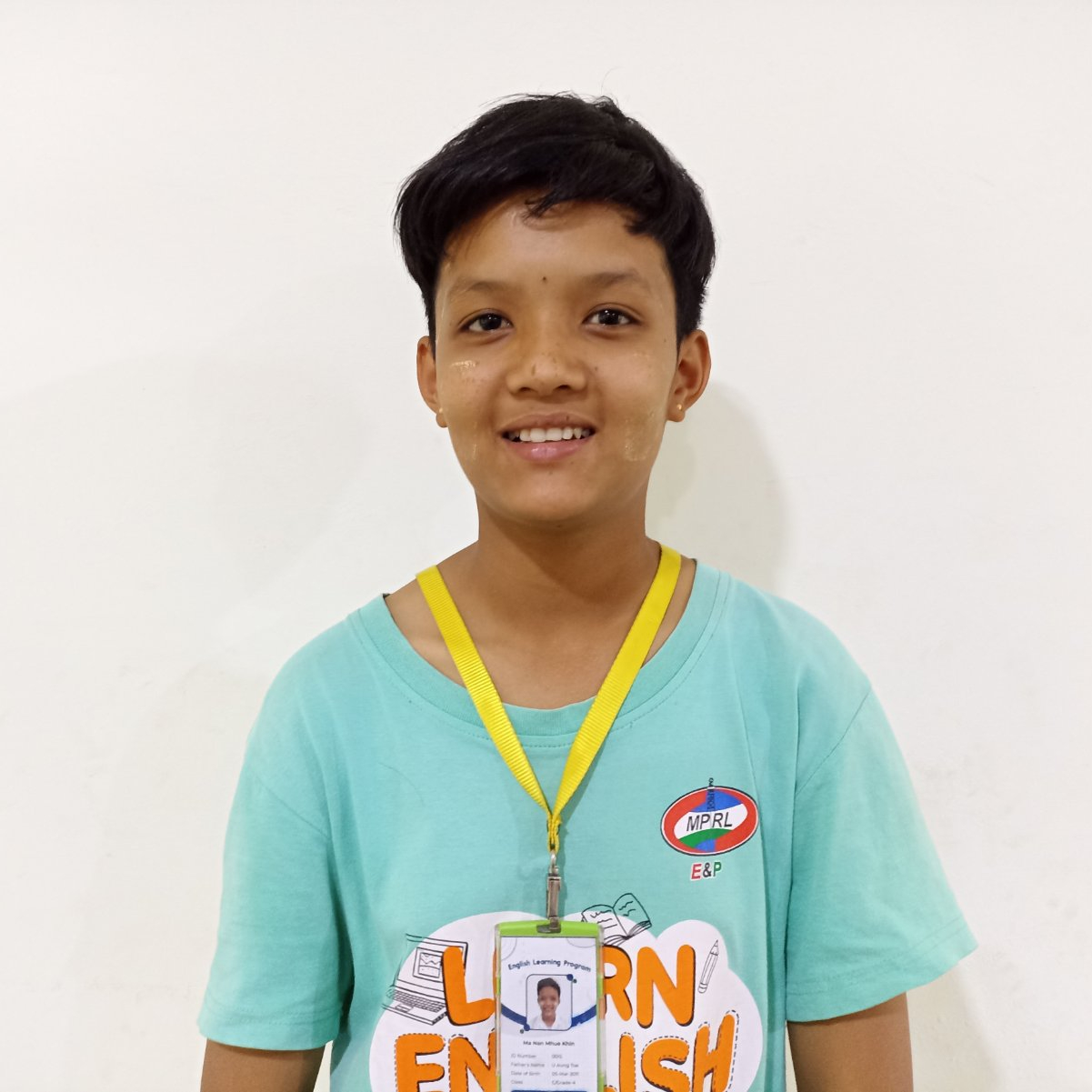
“I’ve been attending the OELP at Aye Mya Community Center over a year now. The course covers many topics, not just English words and grammar but also computer skills, typing, poems, and nursery rhymes.
My favorite parts are grammar lessons and singing. I pay close attention in class and apply what I learn at home, and I got first prize in quarterly exams twice. This course improved my English skills, it helps me better understand my schoolteacher. In this class, I get to use the computer a lot. Now, I can even type in both English and Myanmar. The OELP is so much fun because we get to learn through pictures, videos, songs, and games. I enjoy learning all of this with my friends. We always have fun in class together. I want to take more classes because I want to learn more.”
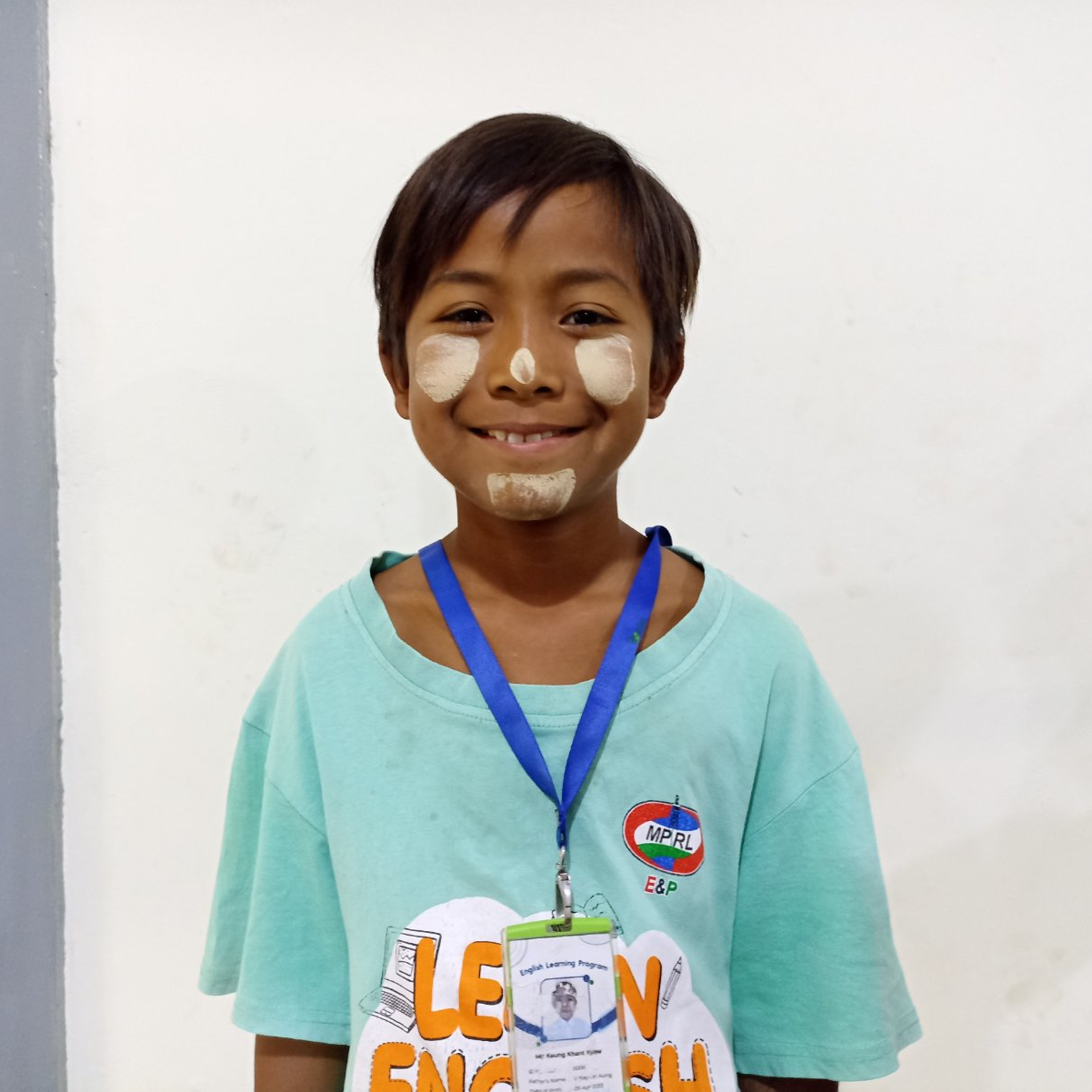
“At OELP, I always come to class early to practice typing in English and Myanmar. I study English vocabulary and if I don’t know, I ask my teacher or search online. In class, I write using the computer and save my lessons in a folder. I use the computer to take photos and videos too.
We have our own account online at mangoSTEEMS Universe (MSU) platform, and we use our own names and own passwords to log in. I also do exercises there. I am on level-6 and my four friends are too. I won second prize three times in the OELP test.
I listen carefully in the class. I love using the computer for learning. At home, I sing English songs to my mother, and I talk to her in English. I am happy to be in this class. I learn a lot of new words and songs. Learning English with computers is so much fun. I want to do more of this!”
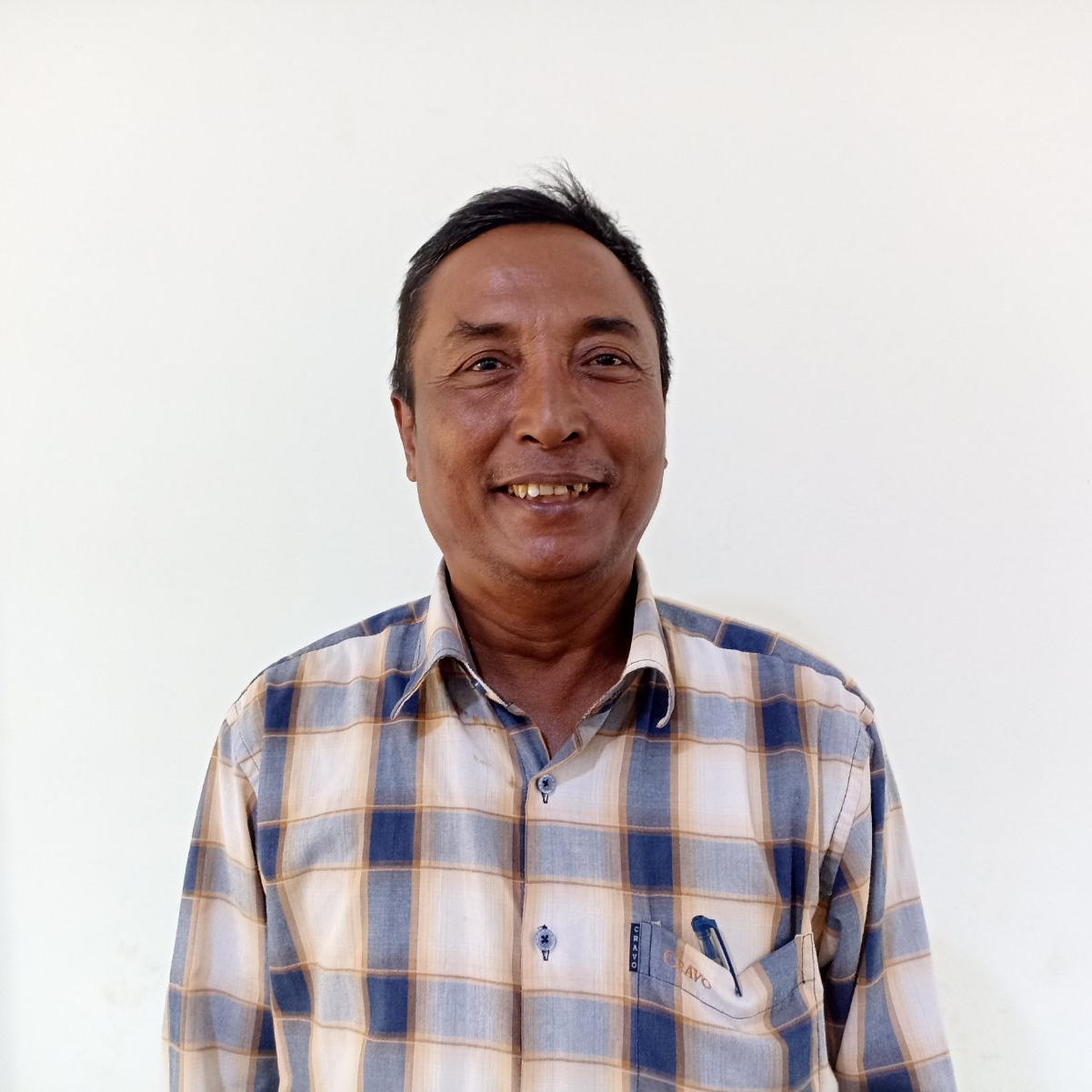
“About 11 children from our Aye Mya Village, including my son and daughter, actively participate in the OELP. Every day after school, my children look forward to this class.After a year of learning, we’ve noticed significant improvements in the English proficiency of most children, including my daughter, Nan Mhue Khin, winning first prize twice in the class exams. Their fondness for both English and computers have grown so much, they are now more interested in technology.
I have been thinking about buying a small laptop for my children. They will love it! When I return home from work, I see all the children engaging in their English class and seeing this makes me happy.
Our entire community is excited and grateful to see our children embracing modern technology for learning. These opportunities are rare, and thanks to the support from MPRL E&P, our children can conveniently access modern education. We hope the company continues to provide more assistance to our Mann Field Communities soon.”
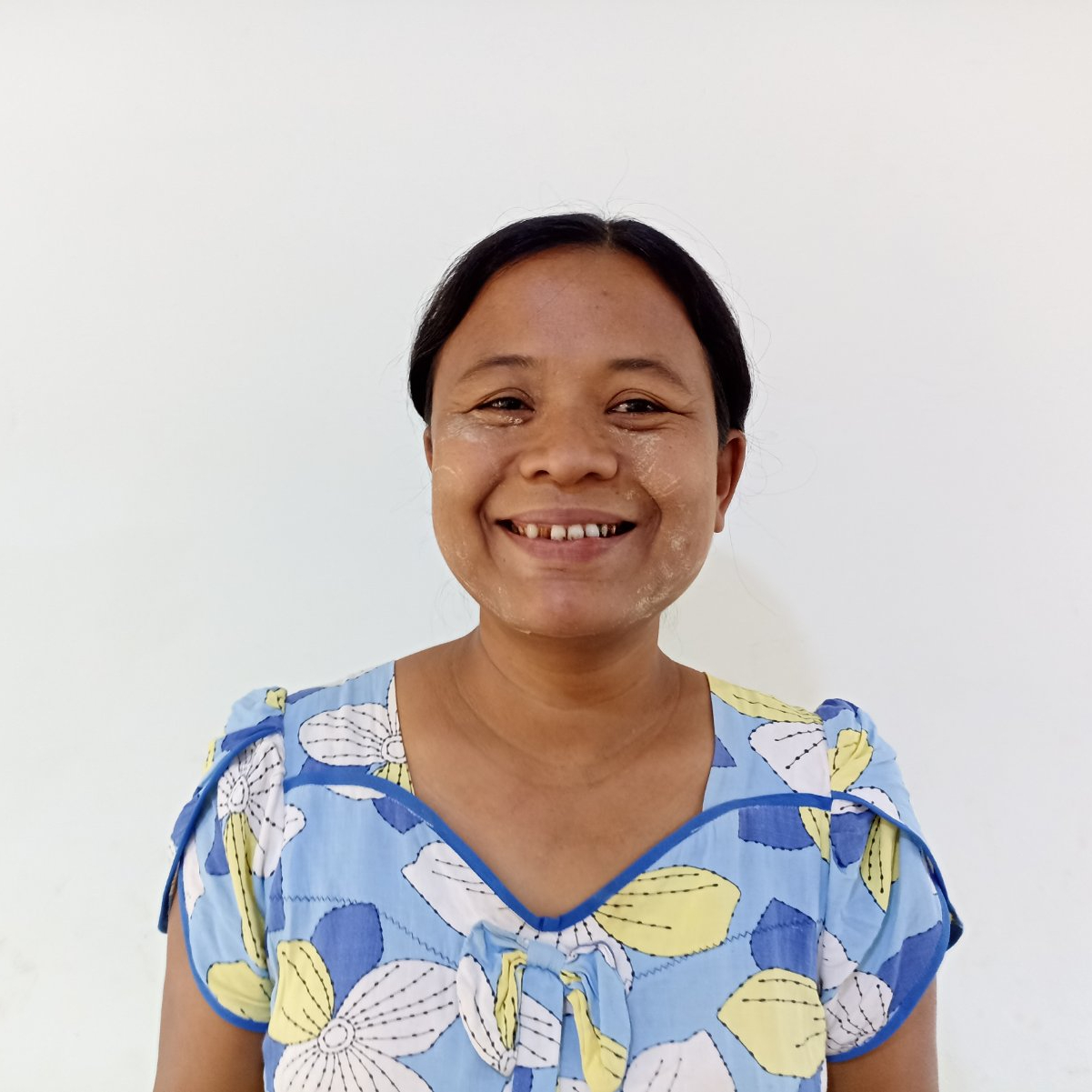
“I am Kaung Khant Kyaw’s mother, and he has been attending the Online English course for over a year. Initially, his English skills were limited, but since starting the course, he has begun using English words in our conversations.
Despite not having a computer at home, he diligently learns and revisits lessons, managing his own account for accessing the platform. He finds joy in this! His dedication is evident through consistent attendance and punctual preparation after school. It brings me joy to see not only my son but also other children actively participating, overcoming challenges like power outages with solar lights.
I’m thankful for MPRL E&P’s CSR Program, which enables our children to access these courses without financial burden. We sincerely appreciate their support and hope for continued assistance in the future.”
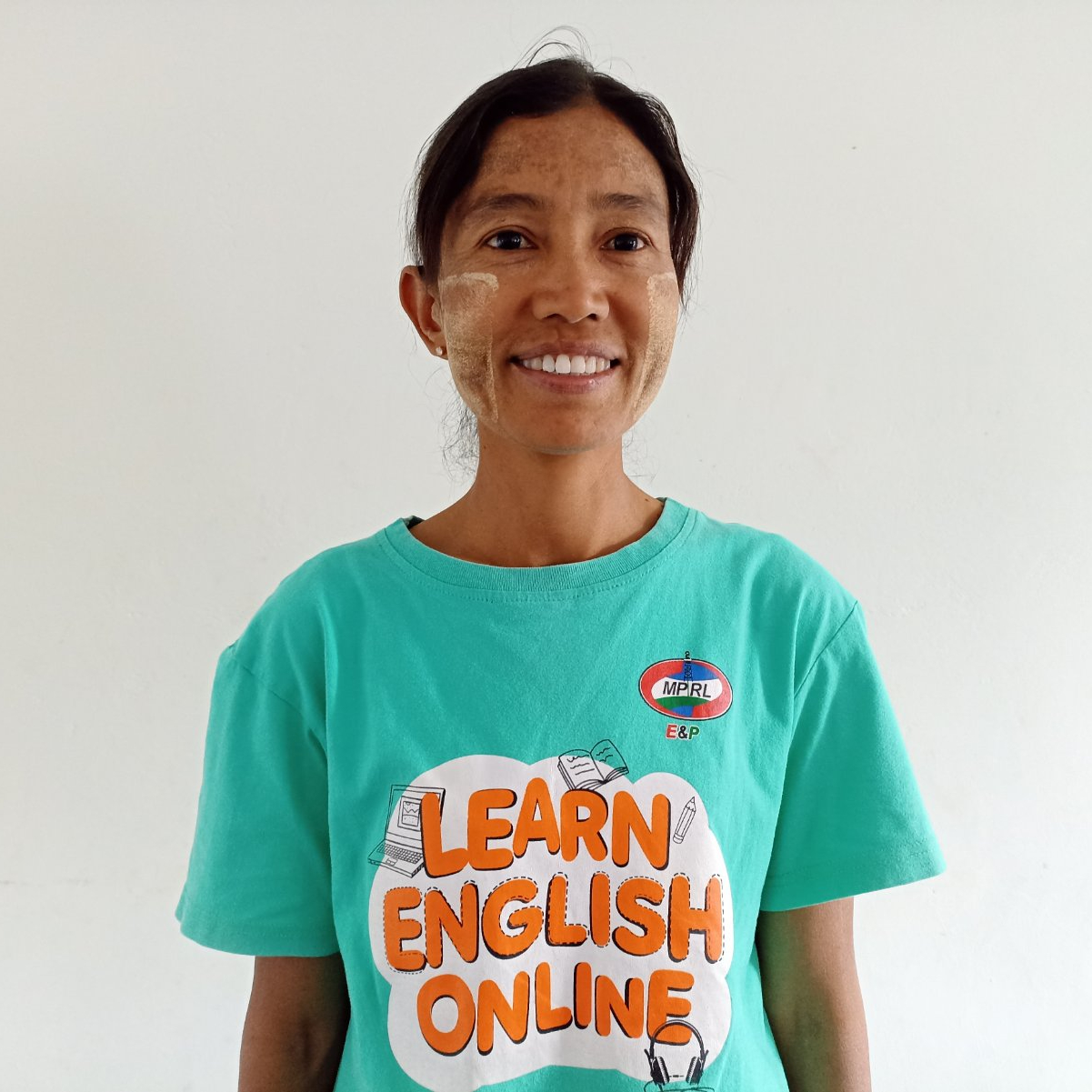
“Digital learning is scarce in our region due to transportation challenges, making it difficult for parents to support their children’s education. Thanks to MPRL E&P’s CSR Program, local children are now learning Online English at Aye Mya and Nan U Community Centers, a support not easily achievable in our community. As a Community Education Facilitator, I teach at Aye Mya Community Centre on weekdays and Nan U Community Centre on weekends.
The CSR Program provides basic computer training for us, fostering community development and capacity building. I enjoy preparing for each class, and I make sure students understand my teaching. I would use real-life examples encourage students to practice in both Myanmar and English, so they understand the language better. After a year of training, Aye Mya students have shown notable progress in computer skills and English speaking. Meanwhile, students in Nan U Village have just begun their journey, and I’m hopeful they’ll progress over time. I wish that MPRL E&P’s CSR Program will continue to support eager us in the future.”
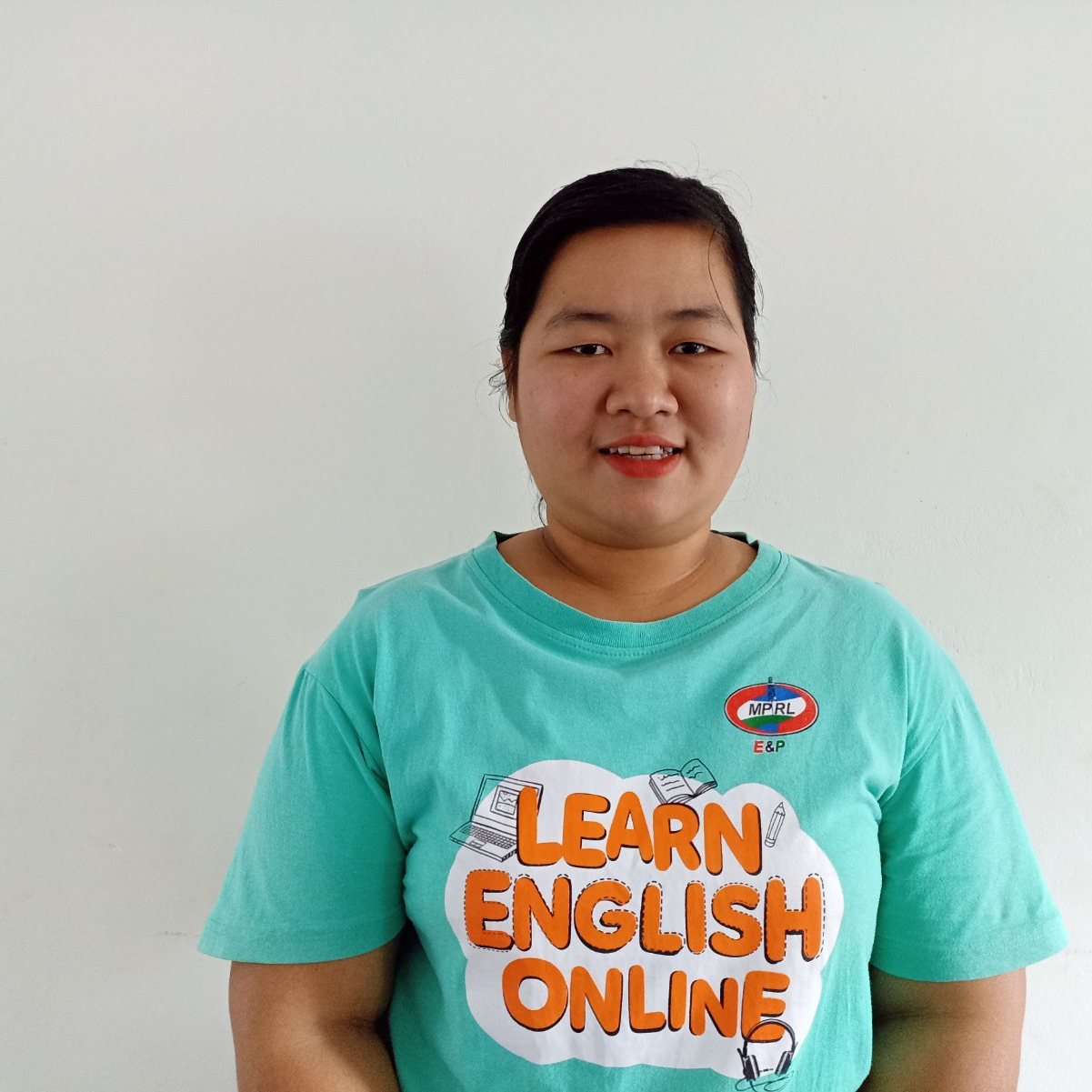
“I currently serve as a Community Education Facilitator at OELP of MPRL E&P. On Wednesdays and Thursdays, I assist Daw Lai Lai Khaing at Aye Mya Community Center, learning her teaching methods. On weekends, I teach at Nan U Community Center alongside Daw Soe Soe New. In my five months here, I’ve observed the children at Aye Mya have improved their English skills, showing a strong desire for learning. They ask questions and practice speaking English with their classmates. In contrast, children at Nan U are new to the program and still developing their English skills but they will catch up soon.
To prepare for teaching, I focus on grammar, vocabulary, and computer usage, learning from Daw Lai Lai Khaing’s guidance. The mangoSTEEMS Universe (MSU) platform is a valuable tool for both teachers and students, offering teaching lessons and resources that enhance the learning experience. This learning opportunity is crucial, especially in rural areas like Mann Field. The MPRL E&P CSR Program’s support extends beyond English classes, providing job opportunities and additional training. I am grateful for the opportunities afforded to us and the benefits it brings to our community.”
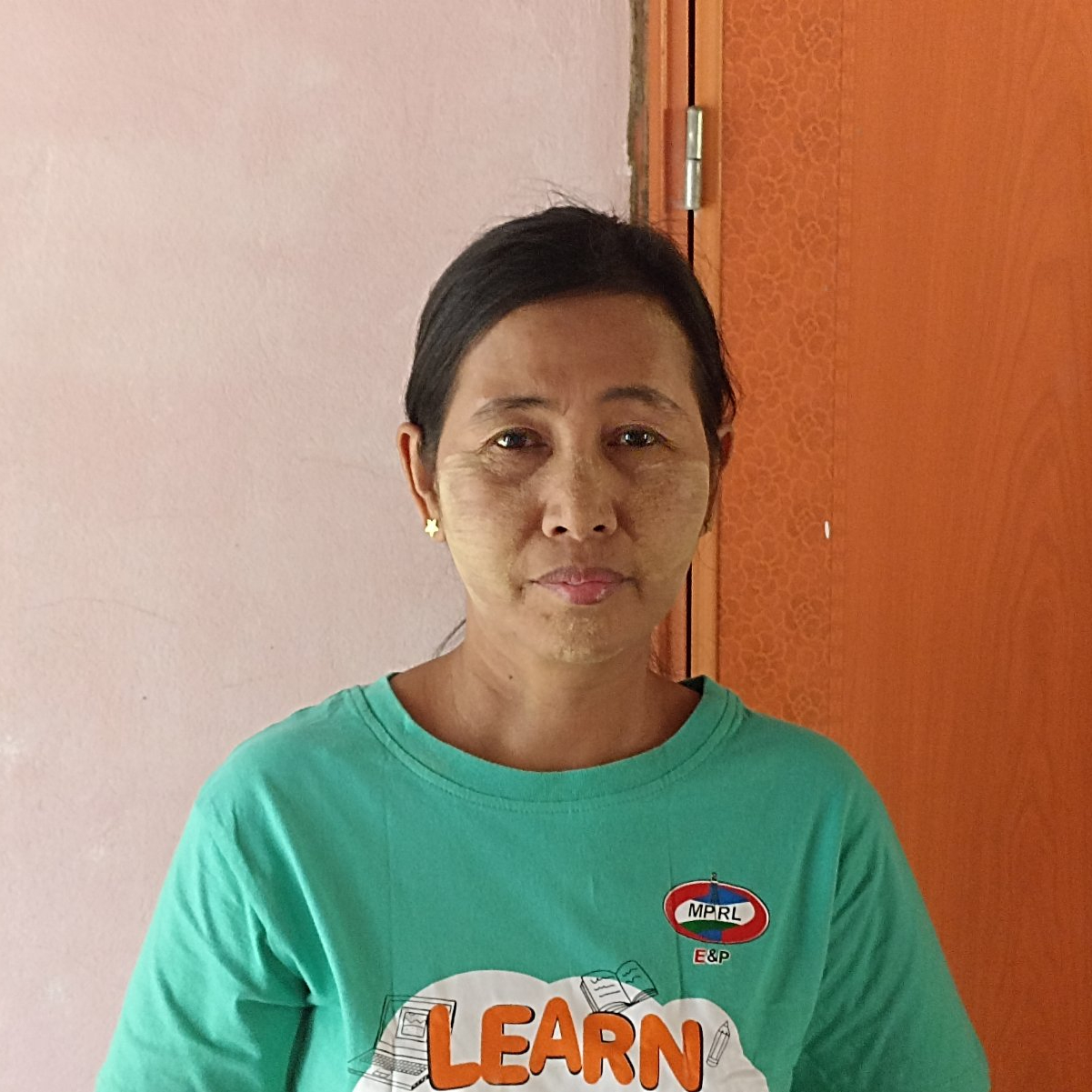
“Since November 2022, I’ve volunteered as a Community Education Facilitator for the OELP. I teach at Aye Mya Community Center during the week and offer support at Nan U Community Center on weekends. My role includes monitoring progress, mentoring fellow facilitators, and suggesting effective teaching methods. The students at Aye Mya Community Center have shown remarkable improvement, mastering typing in both English and Myanmar fonts. I encourage computer skills and online learning through MSU platform. To ensure effective teaching, I invest time in self-study, preparing lesson plans, and enhancing my English language proficiency through resources like the Teacher Portal on MSU platform.
As a facilitator, I’m delighted to witness students’ progress, and there’s growing demand from other villages, indicating the program’s success. I advise villages to preserve and transform libraries into Community Centers to align with MPRL E&P’s CSR objectives. Villages interested in hosting such programs should ensure the regular operation of their libraries, and once established, these centers can host courses like OELP, furthering community development efforts.”
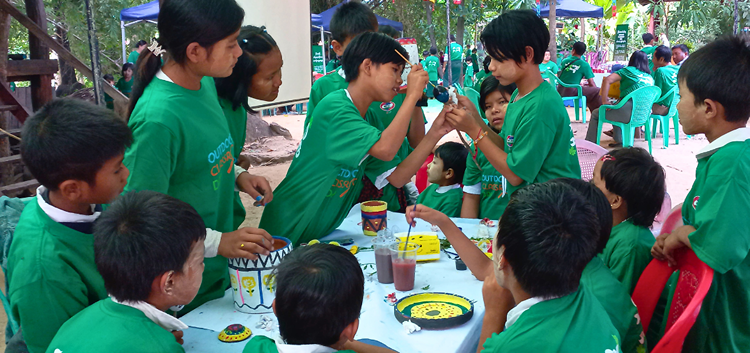
Creating Safe Space for Children’s Outdoor Play – The Why and How
It is the high time we raise mentally well-balanced, creative, and resilient next generations, who are ready for an ever-changing world. If playing and learning outdoors is a key element in our collective endeavors, schools in the community and throughout Myanmar will play a key role to make children’s outdoor learning and play an essential part of their daily life.
Read moreCreating Safe Space for Children’s Outdoor Play – The Why and How It is the high time we raise mentally well-balanced, creative, and resilient next generations, who are ready for an ever-changing world. If playing and learning outdoors is a key element in our collective endeavors, schools in the community and throughout Myanmar will play a key role to make children’s outdoor learning and play an essential part of their daily life.
MPRL E&P’s CSR Program has launched two play sessions, organizing outdoor learning activities for dozens of children attending the community schools in Mann Field.
Our first Outdoor Classroom Day Movement took place on 29 November 2022 at Let Pan Ta Pin School Playground, featuring the provision of knowledge-sharing sessions on planting and gardening, organizing exciting games, and competitions for making vegetable tempura and tomato salad among five teams consisting of schoolchildren, teachers, and parents.
The second Outdoor Classroom Day Movement occurred on 8 November 2023 at Mann Kyoe School, one of the most collaborative communities within Mann Field. Five groups of schoolchildren from Kindergarten to Grade 9, took part in drawing and painting competitions, and the day successfully ended with all participants joining in physically-active fun games and grabbing snacks.
As a local movement aligned with the global Outdoor Classroom Day Movement, our Outdoor Classroom Day aims to engage and empower community schoolchildren. It provides them an opportunity to make friends, learn new skills such as coordination and self-confidence, connect with the natural environment, and inspire positive change for themselves and their communities in an atmosphere of mutual respect and trust.
The movement also aims to raise awareness of the benefits of recess and outdoor play among community school teachers and parents as well as promote greater interactions between children and their parents through play. To support community children’s outdoor learning, MPRL E&P has built green schoolyards in two local schools within Mann Field, which could easily be turned into playgrounds.
Being a part of the global movement, our outdoor classroom day movements remain politically neutral and inclusive. We are working to organize these outdoor learning and playful learning sessions one school at a time on a yearly basis in Mann Field.
Play prepares children for adulthood by allowing them to develop a range of social skills. Research says children learn how to communicate effectively and interact with one another through play, including reading emotions and handling difficult situations. It is through play that children learn to understand boundaries, telling apart between acceptable and unacceptable behavior.
However, this is increasingly challenged by multiple factors including child poverty, neighborhood safety concerns, resource limitations in schools, and more recently pandemics. In addition, many children today are being raised in an increasingly hurried and pressured lifestyle of parents and technological revolutions like the Internet and mobile phones limit the benefits children would gain from moving around with friends and playing in the natural environment.
While we as parents, teachers, or community as a whole strive to create the optimal developmental environment for children, it is very important to include play in academic and social-enrichment activities along with creation of safe environments for all children. Through our Outdoor Classroom Day Movement at community level in Mann Field, we will continue:
• To provide a platform for young students to play, share, learn together, and inspire each other while developing their skills, confidence, sense of self-worth, and positive social interactions.
• To raise awareness and train teachers, parents, and communities to support ongoing outdoor play and learning activities.
• To work with the community schools in Mann Field to develop a locally-led Outdoor Classroom Day Movement network.
Our slogan is ‘Let’s Play & Learn’. All that is required is for all of us to come together and to make it happen!
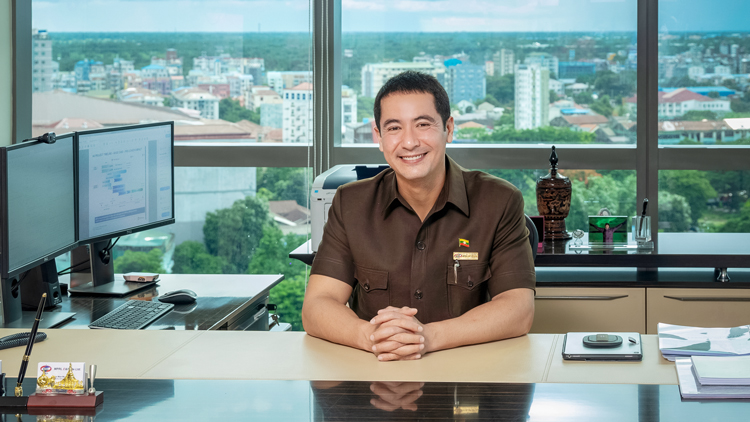
Ten Years of Meaningful Impact: Reflecting on MPRL E&P’s Corporate Social Responsibility Journey
It is truly a pleasure to feature a few of my thoughts regarding MPRL E&P’s Corporate Social Responsibility element of our sustainability journey on our 10th year milestone. As we celebrate our achievements over the decade, it is certainly worthwhile reflecting on our beginnings of this meaningful and memorable journey.
Read moreTen Years of Meaningful Impact: Reflecting on MPRL E&P’s Corporate Social Responsibility Journey It is truly a pleasure to feature a few of my thoughts regarding MPRL E&P’s Corporate Social Responsibility element of our sustainability journey on our 10th year milestone. As we celebrate our achievements over the decade, it is certainly worthwhile reflecting on our beginnings of this meaningful and memorable journey.
The culture and spirit of our Myanmar people has always been built on foundations of empathy, compassion, and metta; the essence of why it is a core part of our social fabric to help and provide for, where we can, the underserved and the less fortunate within our communities. This is why Myanmar, even as a developing country, has been frequently recognized worldwide as one of the most generous nations when it comes to philanthropy. Such is what guides many Myanmar individuals, as well as Myanmar businesses and corporations, to consistently participate in collective acts of philanthropy directed to those in need; acts of philanthropy, which over time, came to be known, promoted, and publicized as Corporate Social Responsibility (CSR) initiatives by many organizations within Myanmar’s corporate community. Along the same lines, MPRL E&P has consistently been involved in such acts of corporate philanthropy since our founding in 1996, whether it be making periodic monetary donations, or donating towards the construction of new school buildings in Mann Field, or CEO’s Foundation in providing educational scholarships over many years to students of various ages.
Our CSR Department was formally established in 2012 around the same time I first started my employment at MPRL E&P. In establishing the strategy and objectives for this department, I vividly recall giving careful consideration towards whether we should continue to be guided by only our philanthropic status quo, or rather be guided by a more effective, far-reaching, and sustainable strategy. It is worth remembering that Myanmar at the time was going through a period of unprecedented and profound transformation within our society, governance, and business environment. It was evident that local communities, whom long had little influence or say, had now transitioned into a state of the world where they rapidly became key stakeholders within various businesses that had a footprint that impacted such communities, no matter the magnitude of the impact. It became clearly foreseeable that continued long-term sustainable operations, particularly in legacy assets such as Mann Field, required us to obtain and preserve a robust Social License to Operate from our local communities that co-exist within our operational area; a license that required a strategy that evolved past philanthropic initiatives alone. This set the stage for us to pursue a CSR strategy that prioritized the principle of sustainably improving livelihoods, as opposed to predominantly providing donations; a principle that could be summed up as prioritizing ‘teaching others to fish’ as opposed to simply ‘providing fish’. Not only would such an approach enable us to secure the most meaningful and desired social operating license, but would also ensure the creation and preservation of sustainable livelihoods for our local communities for many years to come, and beyond a point in time when we may no longer be present in their day to day lives.
As a key part of our CSR strategy, it was decided that pursuing a local community partnership model (the first such model created and practiced within the Myanmar business community) would enable us to more rapidly and effectively achieve our key objectives. This model consisted of our CSR human resources also including a core component of community volunteers from each of the 14 local communities that coexist together with us in Mann Field. Community volunteers would serve and participate, as equal partners to our CSR Team, in their capacity as representatives of their respective communities, advocating for their community needs, co-developing programs, monitoring/evaluating our collective CSR performance, and acting as focal points for effective and meaningful two-way communication. There was also a limit placed on how long an individual could serve as a community volunteer before being required to be replaced by another member of their community in order to ensure diverse representation.
Based on our earliest social impact assessments, community needs assessments, and consultations, it was learned that there were a number of legacy issues, concerns, and grievances (dating back to even before our active presence in Mann Field in 1996) stemming from historical operational impacts towards our Mann Field Communities. As opposed to frame these findings as threats, I recall taking the view that such findings much rather presented themselves as opportunities that, if effectively understood and addressed, could generate a significant amount of both trust and social capital that could materially enhance our ability to achieve collective community buy-in for our intended new CSR Programs and initiatives. This formed the basis of the creation of our Operational Grievance Mechanism (OGM), serving as a formal communications platform for our local communities to officially inform us (in person, on the phone, or in writing, whichever was convenient) of their concerns and grievances. As another first initiative of its kind in Myanmar, there was an initial underlying concern of the risk that the OGM could be abused or used for purposes other than effective and honest communication. However, in practice, what was truly enlightening for me was that over the 8 years that we have had the OGM in place, there has not been one instance where the OGM was not leveraged by our local communities for its intended purpose. Since the inception of the OGM, there have been numerous grievances communicated to us, a large majority of which have been straightforward and addressed/resolved to a high level of satisfaction from the local community member lodging the grievance. What has also been an important element of the process involved grievance close-out consultation and dialogue, particularly effective when we had to explain to our local communities why some grievances, after careful investigation and assessment, could not be resolved; a part of our process that always resulted in an acceptable level of satisfaction from the community member lodging the grievance.
In 2015, many of you may remember that parts of Myanmar underwent a significant natural disaster in the form of mass flooding due to torrential and unprecedented rainfall from Cyclone Komen. Nationwide, in addition to our Government relief response, the general public also mobilized record breaking initiatives of disaster relief efforts to directly assist our fellow citizens that resided in the most impacted areas. One of the areas most impacted was Magway Region, and I vividly remember the quantity of relief supplies and large numbers of citizens from other States and Regions being physically involved in the relief efforts, mainly targeting towns located in northern Magway (towns such as Pwint Phyu). However, in the more remote communities within Mann Field, there were little to no relief efforts that were being provided. I recall forming an internal task force to lead our own emergency response and relief efforts, together with both our staff and community volunteers, to directly assist the impacted communities within Mann Field. We provided water purification tablets, food supplies, mosquito nets (noting the prevalence of malaria), firewood, critical medicine, and an emergency mobile medical clinic. Through our response, the additional creation of social capital and trust from our local communities was tremendous and far reaching.
One of the key learnings that we realized from our response to this natural disaster was that there still remained a critical need for us to contemplate a form of philanthropy within our CSR strategy. However, it was also important for us to design this element to ensure that our philanthropic initiatives would not create a long-term dependency or an expectation of sustained handouts. It was decided that we would pursue a model of shared philanthropy as one of our core CSR strategy pillars. This concept involved targeting philanthropic initiatives towards the most basic needs (such as access to clean water), and a design that would include a small collective contribution or co-investment from our local communities in support of our shared philanthropic initiatives.
Our community partnership model, OGM, effective resolution of legacy issues/grievances, and targeted disaster relief response efforts all markedly enhanced both our social capital and trust within each of our 14 Mann Field Communities, forming the bedrock of our CSR strategy and enabling us to achieve materially effective execution capability. Our new CSR strategy was then firmly established and rolled out underpinned by four fundamental elements consisting of (1) educational and vocational enhancement; (2) livelihood improvement; (3) access to healthcare; and (4) shared philanthropy.
Our undertakings, achievements, learnings, and milestones are a source of much pride in the sense that they truly embody not only the core values of our company, but rather the spirit and morale fabric of our Myanmar people. Beyond the human element of CSR, it is also worth noting that since the start of our CSR journey, a question that we have repeatedly asked ourselves is how we can measure, from a business point of view, our return on our social performance. Over the course of the political events that our nation has faced over the last two years, the answers can be found by observing the state of the security and safety situation within Mann Field. Comparative to many other onshore producing fields in Myanmar, Mann Field has faced, by far, the fewest security related incidents, and for an extended period now, is able to successfully sustain our production operations and performance similar to periods prior to 2021. Our ability to do so, in light of the overarching security related circumstances, is a clear measure of our social return from our decade of CSR, unequivocally demonstrating the business value of securing and preserving a robust Social License to Operate.
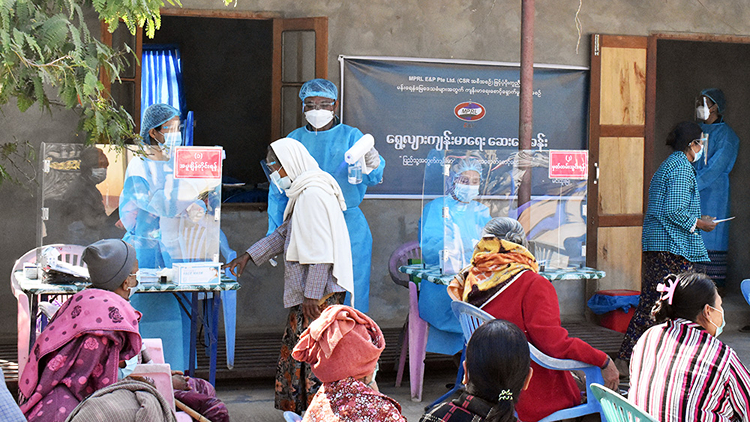
Keeping up with Healthcare Delivery: Reviving Mobile Clinic
MPRL E&P revived its Mobile Clinic Program in Mann Field after witnessing many hardships in the community as a result of the pandemic. The up and running Mobile Clinic is now providing primary healthcare services and health education services for those who had been stripped of access to proper healthcare amid the pandemic and socio-economic crisis due to the rise in general living expenditures and/or being stuck at home as a result of coronavirus closures.
Read moreKeeping up with Healthcare Delivery: Reviving Mobile Clinic MPRL E&P revived its Mobile Clinic Program in Mann Field after witnessing many hardships in the community as a result of the pandemic. The up and running Mobile Clinic is now providing primary healthcare services and health education services for those who had been stripped of access to proper healthcare amid the pandemic and socio-economic crisis due to the rise in general living expenditures and/or being stuck at home as a result of coronavirus closures.
The revived Mobile Clinic comes equipped with a locally recruited medical doctor, health assistant, volunteers, a socially distanced waiting area for patients, glass dividers with small hand openings for patient registration and preliminary physical screening as well as plastic partitions between the entrance and exit.
It rotationally runs in four villages and each regular clinic session lasts for three hours on average. The services are free of charge for seniors, women, and children.
The Mobile Clinic, in addition to supporting the medically underserved as intended originally, can assist in keeping an eye on at-risk groups in light of the coronavirus pandemic in its third year. MPRL E&P temporarily suspended the Mobile Clinic Program for twenty-two consecutive months for safety concerns for both staff and patients.

It has been shut down since 11th March 2020 when the World Health Organization declared the novel coronavirus outbreak a global pandemic.
The Mobile Clinic Program was first introduced in September 2018 to meet the needs of the medically underserved civilians consisting primarily of women, children and the elderly in Mann Field. The CSR and Communications Department, which leads the initiative, conducts regular assessments with patients and volunteers to ensure satisfaction and effectiveness of the services.
The most recent assessment revealed the former patients’ strong desire to have the Mobile Clinic reopened in line with the pandemic prevention measures since they are facing challenges in seeking proper healthcare services.







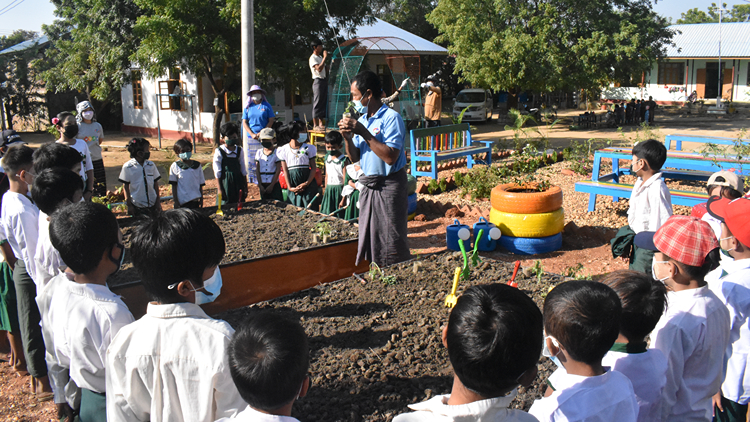
Making the Case for Green Schoolyards in Mann Field Communities
Green schoolyards are getting increasingly popular around the world and it is never too late to invest in school grounds, whether in smaller communities or public institutions.
Read moreMaking the Case for Green Schoolyards in Mann Field Communities Green schoolyards are getting increasingly popular around the world and it is never too late to invest in school grounds, whether in smaller communities or public institutions.
Over the past few decades, there has been a growing distance between human societies and nature due to technological advances, modern urbanization, and infrastructure, and yet these trends have had negative impacts on ecosystems and society’s relationship to nature. Most of us casually talk about this large concern regarding the effects of economic demand and population growth on our community and the environment around us. One of the ways to tackle this ongoing problem is by fostering outdoor learning initiatives at schools, also known as the “Green Schoolyard Movement” which is gaining momentum around the globe. This popularity is the result of many benefits that these “new” schoolyards bring out, from developing a sense of curiosity, adventure, and healthy lifestyle among the children and youth of all ages, while improving the local ecosystems and environmental sustainability.
Many studies have shown that contact with nature can enhance creativity, bolster positive mood, lower stress, improve mental acuity, well-being, and productivity. It also cultivates social connectedness and promotes physical activity. Further, not only are outdoor play yards an important part of children’s enjoyment of childhood and mental growth, but they also build healthy communities and vibrant school environments. One recent study shows a correlation between improved cognitive development in children with outdoor green spaces, particularly with greenness at schools.

Green schoolyards are getting increasingly popular around the world and it is never too late to invest in school grounds, whether in smaller communities or public institutions. It’s clear to me that we need to put more effort into developing this vision. To make this happen, support is needed from like-minded organizations, local and public institutions, and community leaders. A good example would be to incorporate outdoor teaching in schools and use the green spaces as a way to rejuvenate students’ minds. Who doesn’t love fresh air and natural light?
As an innovative community leader, MPRL E&P strives to provide any support to the communities where we work. In Mann Field, our CSR Team has begun the initiative of having an outdoor learning program to promote a healthy lifestyle and environmental awareness. We are driven and dedicated by this vision for outdoor learning because we believe it plays an important role in the overall development of children. They need outdoor play and the touch of nature, but we are not giving them this opportunity and not to mention, they learn faster through experience and social play instead of sitting at the desk reading a textbook. In Mann Field, we conduct community outdoor learning programs in “schoolyards” that include flower gardens, playground equipment with recycled materials, nature play areas, raised bed vegetable gardens, trees, and more. We feel that we are also contributing to environmental sustainability.

Our CSR Team and community leaders at Mann Field will be taking part in the global Outdoor Classroom Day movement to celebrate the Outdoor Classroom Day on 19th May 2022. This is a day where teachers are encouraged to take their classes outside – to teach the students the developing skills for life by showing them a better understanding of the environment while enhancing engagement through learning and fostering physical and mental health.
Furthermore, in Mann Field, to help children reach their full learning potential, we will be offering regular outdoor learning opportunities. Every week, teachers will teach one lesson outdoors, in a green space. The community leaders and teachers will focus on environmental awareness building and discuss ways to create and sustain green spaces at schools and in the community. After all, nature offers a vibrant playground of possibilities with all the resources and facilities needed. How fun is it to get your hair messy and have dirt stains all over your clothes? And who will say no to academics with fun activities!







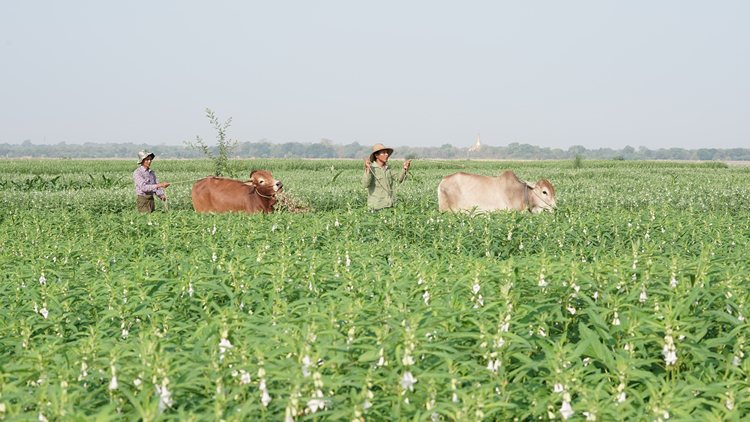
The Field is the School; Plants are the Teachers
Being a farmer is more than a job. It is a way of life full of learning opportunities.
Read moreThe Field is the School; Plants are the Teachers Being a farmer is more than a job. It is a way of life full of learning opportunities.
For farmers, the weather is never predictable, and there is always something that needs to get done before the sun goes down. But at the end of each day, they achieve something palpable. Without even noticing, working on a farm can develop a level of patience and integrity that takes many people years to acquire and learn. Nowadays, most of the rural youth do not want to farm for a living. We cannot blame them – it is hard work. Aging farmers often rely on hired labor, which pushes up production costs. But underneath that notion, there are many life lessons learned from farming.
Children who grow up on a farm in rural areas learn to create their own fun and entertainment. The great outdoors is a real-time video game, filled with trees to climb, bugs to catch, and sunshine to soak up. Kids who grow up on a farm do not need to play with farm animals on their iPads, because they actually have real farm animals to watch and play with. Farming teaches a person from a young age to appreciate the ability to create his or her own fun, rather than rely on others for happiness and enjoyment.
Farming can truly be a family affair. Families that farm together share and pass on family values, knowledge and skills which can lead to forming stronger communities and sustainable lifestyle. Children who grow up on the farms are resilient and tough, and they understand life struggles and know how to cope with inconveniences and challenges. They learn to appreciate togetherness and simplicity of life.
Nowadays, farming communities in the Dry Zone are found to be most sensitive to the impacts of erratic rain, land degradation, limited access to quality inputs, and unsupportive agricultural policies. Moreover, these shocks and stresses were found to be in a state of constant interaction, serving to exacerbate one another in several ways. The overall result is a deepening cycle of debt that further reduces the ability of households to cope and adapt to dynamic social, economic, and environmental conditions. For example, farmers often have to cope with restrictive repayment conditions by selling their crops immediately at harvest when prices are at their lowest. In turn, farmers are unable to produce an adequate profit, invest in higher quality inputs, or invest in savings. As a result, farmers and laborers are becoming increasingly impacted by acute shocks that affect product quality and quantity due to low rainfall or pest infestations.
In the near future, MPRL E&P’s CSR Program aims to establish community-based, non-formal education to groups of 20-30 farmers from Mann Field Communities through self-discovery and participatory learning principles. The school will bring together farmers who live in the same village or catchment that are sharing the same ecological settings and socio-economic situations. This will in turn provide them with knowledge and realization that they can actually control many factors which influence their harvests.
The upcoming Farm Field School (FFS) is a participatory non-formal adult learning where farmers and extension staff will have a chance to debate over observations including climate monitoring and apply their previous experiences and share new information from outside the community. Thus, FFS as an extension methodology will form a dynamic process that is practiced and controlled by the farmers to transform their observations to create a more scientific understanding of the crop or livestock agroecosystem.
MPRL E&P CSR Program’s ultimate aim of initiating the Farm Field School is to improve farmers’ knowledge and decision-making abilities, so they can build up sustainable agricultural systems that preserve environmental integrity, increase economic benefits, and promote social equity. FFS will consist of groups of people with a common interest, who get together regularly to study the “how and why” of a particular topic. The results of the meetings will be management decisions on what actions to take. All learning will be hands-on and based in the field, and learning materials will be learner-generated. The role of the extension worker will be very much that of a facilitator rather than a conventional teacher. Once the farmers learn and know what they have to do after observation and being in the fields, the extension worker will take a back-seat role and offer help and guidance only when required. This way, farmers understand the ecology and become experts in their own field.
FFS will also provide an opportunity for farmers to practice and test or evaluate sustainable land-use technologies and further introduce new technologies by comparing their conventional technologies developed using their own traditions and culture. Pretty much, FFS will be a school without walls. It will be centered on the concept of hands-on learning with the goal of building on the farmers’ skills and enhancing their capacity to critically analyze and solve local agricultural challenges. The school will also help provide vulnerable young people a community to tap into and build a foundation for life skills that are invaluable for a better future.



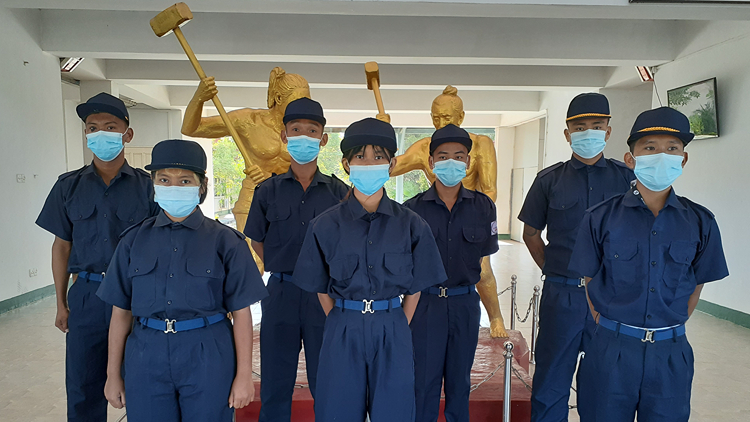
Supporting a New Group of Community Youths for Vocational Training
MPRL E&P’s CSR Program launched a scholarship program for a new group of seven youths in Mann Field in December 2021. The scholarship enables the community youths to acquire quality and relevant technical and vocational skills training at No. (5) Industrial Training Center (Magway), which was set to reopen after a month-long closure amidst the pandemic and limited distance learning alternatives.
Read moreSupporting a New Group of Community Youths for Vocational Training MPRL E&P’s CSR Program launched a scholarship program for a new group of seven youths in Mann Field in December 2021. The scholarship enables the community youths to acquire quality and relevant technical and vocational skills training at No. (5) Industrial Training Center (Magway), which was set to reopen after a month-long closure amidst the pandemic and limited distance learning alternatives.
The scholarship selection process is based on a set of criteria openly announced in the communities. Out of 23 applications, seven were chosen as recipients of this scholarship program which covers their one-time enrollment fees, monthly stipends, and general expenses to study the 11-month courses in Automobile Maintenance and CAD/CAM.
According to the United Nation’s statistics, as much as 80% of technical and vocational training activities for youths and working adults across the world have been negatively affected by the coronavirus-induced lockdown and physical distancing protocols, thus resulting in implications and challenges for the post-pandemic economic recovery. In this regard, MPRL E&P’s CSR Program intends to support this recovery and mitigate the effects of the pandemic on community youths in Mann Field by continuing the provision of vocational training through its educational partnerships with local and regional resource organizations. It is also important that education and skills training programs are able to respond to the growing number of youths needing vocational skillsets including reskilling and upskilling opportunities for working adults.

There is a total of six Industrial Training Centers, including No. (5) Industrial Training Center (Magway), set up across Myanmar under the Training Centers Supervision Department, Directorate of Industrial Collaboration of the Ministry of Industry, in order to train skilled workers for industrial sector development and to support human resources development. These centers are established with the cooperation of partner organizations from donor countries such as China, India, Korea, and Germany. Up to a total of 13 different courses are offered at the Industrial Training Centers. Let’s find out what these students have to say about the scholarship program, courses they are taking, and future dreams!
Ye Naung
Pauk Kone Village
I am 24 and I have completed the university entrance Matriculation Exam. I am looking forward to learning about the maintenance of automobiles such as cars, trucks, and buses at the Training Center. I chose this subject because I want to work in an auto service center or automobile factory in the near future. To be able to attend the vocational training course on Automobile Maintenance, I received a scholarship from MPRL E&P’s CSR Program, which covers both the school-related fees and my monthly expenses. I heard about this scholarship program from a former student who studied at the same Training Center and through him, I learned about the Training Center’s rules and regulations, as well as the preparations for the application and interview process. With his help, I was able to successfully round off the application process and enroll in the program.
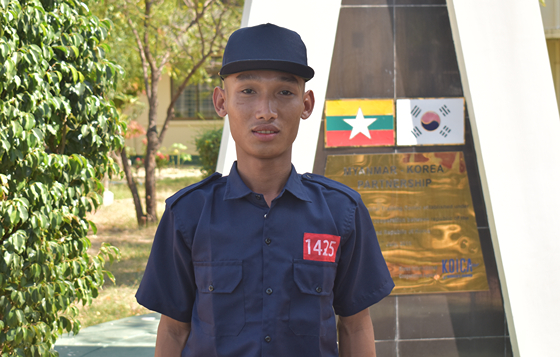
During the stay-at-home/lockdown period, I was stuck at home most of the time but now I am ready to start the program. I am excited to learn about automobile maintenance because I find it really useful and interesting and I see myself working in this field in the near future. I want to use my acquired skillset after finishing this program and one day, I would like to set up my own small business. Many youths in Mann Field are interested in this scholarship offered by MPRL E&P’s CSR Program and in my opinion, the scholarship program is an important initiative for youths’ access to livelihood opportunities.
Moe Hayman Tun
Mann Kyoe Village
I am 18 and I have studied up to Grade 11. I am studying the CAD-CAM course at No. (5) Industrial Training Center (Magway) due to my interest in working with computers and creating designs. I am hoping to get familiar with computers and learn how to use different software. As a scholarship recipient, the CSR Program supports me with a monthly stipend, dining and school enrollment fees, uniform, and other general expenses. I understand, through the former students, that the CSR Program also assists in finding job opportunities for fresh graduates.
After hearing about the availability of scholarships for community youths through the Village Administrator and Community Volunteer, I started looking for information about the Training Center and some basic knowledge related to the course that I want to pursue.
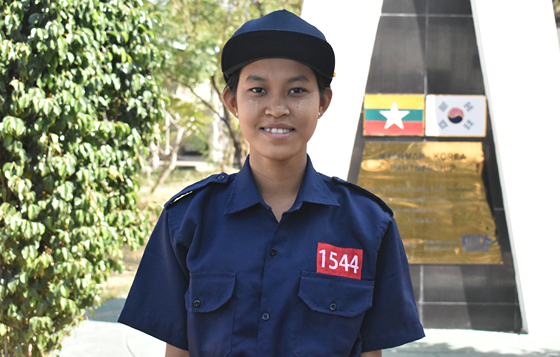
During the outbreaks of the pandemic, I stayed at home and spent my time taking Japanese language classes and basic Computer classes online. I am excited to become proficient in computer software particularly in design and manufacturing processes and I want to become a person who is successful in my future endeavors. I am grateful for MPRL E&P for this wonderful initiative and the scholarships offered by MPRL E&P’s CSR Program are of great assistance for all the youths in the community. That is why it has become very popular among the younger generation who are eager to develop their technical skills and gain access to good job opportunities.
Ingyin Khaing
Mann Kyoe Village
I am 18 and I have completed the Grade 11 curriculum in terms of my formal education. At No. (5) Industrial Training Center (Magway), I am studying the CAD/CAM course. Since I am interested in computers and designing machines, I am hoping to receive technical knowledge and training on using specialized computer technology in the fields of operation and control of machines and processes.
The CSR Program supports me with a monthly stipend, enrollment fees, and other expenses to study at the Training Center. After hearing the news that the CSR Program was offering scholarships for youths to be able to study at No. (5) Industrial Training Center (Magway) from the Village Administrator and secretary, I prepped myself by seeking more information about the Training Center and hitting the books on industry basics, English, and Mathematics.
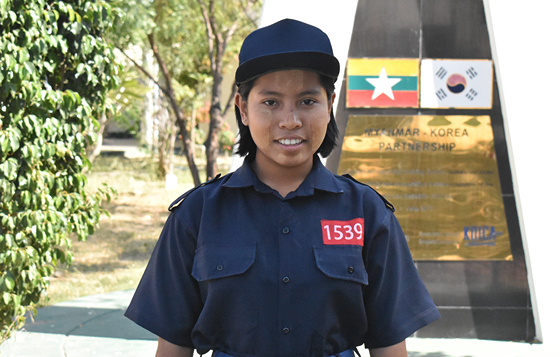
During the lockdown period due to COVID-19, I helped my mother with household chores. I set aside time to study computer technology. I have a hobby in tailoring and design. I want to be able to acquire specialized knowledge and skills in creating designs using different programs and thereby become someone who can contribute to the development of the industrial sector of Myanmar. Such educational assistance of MPRL E&P’s CSR Program attracts the youth of all ages among the communities and I am confident that the program will only grow bigger in the future!
Khant Thu Tun
Lay Eain Tan Village
I am a First Year university student from Lay Eain Tan Village in Mann Field. Automobiles are always a fascinating subject for me and I am eager to gain knowledge and hands-on training on basic automobile maintenance skills related to engines, gears, and autobody.
The Community Investment Field Coordinator Daw Zin Mar Myint made a monthly visit to the Village Administrator and delivered information related to the training centers, rules and regulations, along with the courses offered. One month into attending personal interview sessions with the Training Center officials, she drilled us on the possible interview questions so that I became well-prepared for the interview. Through the Village Administrator, I found out that the CSR Program would provide financial aid including other sources of support in collaboration with the Training Center for the trainees-to-be.
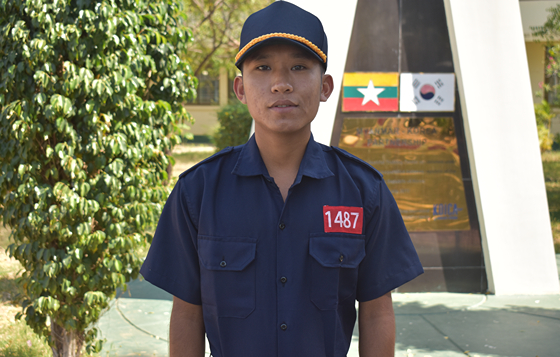
During the downtime due to the COVID-19 lockdown, I helped my family with household chores. Now I am determined to work hard and do my best to support my family financially in the near future. I would like to thank the CSR Program and MPRL E&P for their assistance in fulfilling all our needs and providing opportunities for vocational training. As youths, we will work hard to be able to contribute to building an industrialized thriving nation.
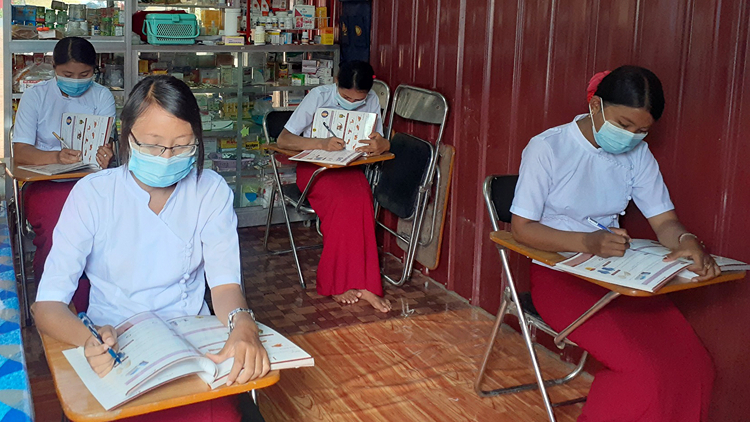
Helping to Get Ready for Careers in Nursing Field
The educational partnerships spearheaded by MPRL E&P as part of the CSR Program for the host community in Mann Field provide opportunities for eligible youths in the community to acquire vocational and life skills, which they need to successfully transition to professional careers and adulthoods.
Read moreHelping to Get Ready for Careers in Nursing Field The educational partnerships spearheaded by MPRL E&P as part of the CSR Program for the host community in Mann Field provide opportunities for eligible youths in the community to acquire vocational and life skills, which they need to successfully transition to professional careers and adulthoods.
In the contract year 2020-2021 (April 2020 to March 2021), our CSR Team, in collaboration with a private training center namely Ayeyarwaddy Training Center in Minbu, continued its efforts in supporting three female students in their twenties from Mann Field (out of 15 applicants) to enroll in a 2-month nurse aide training course.
These selected students said that they found out about the open call for applications by MPRL E&P’s CSR Program through the Village Administrators. After discovering the selection criteria which included the requirements of applicants’ age to fall between the age bracket (18-30 years old) and must finish at least middle school level, the candidates handed over their applications to the CSR Field Team.
One of the applicants, Ma Za Lat Wah from Lay Eain Tan Village, shared her story by saying how she was so excited about getting accepted to the program. “I have always been interested in becoming a nurse aide and when I learned through the Village Administrator that MPRL E&P’s CSR Program was accepting applications for a nurse aide training course, I submitted my application right away. I was eager to learn about how to give good care to those who are ill including the elders and children. One day, I would like to run my own village clinic and provide health care services to the community.”
During the one-month practical training course at the Ayeyarwaddy Private Teaching-Training Center in Yangon, the three selected students learned new skills and knowledge including personal hygiene and basic clinical nursing skills, safety and emergency procedures, communication and interpersonal skills, which helped them with their roles in the health care sector.
Another trainee, Ma Hla Wut Yee Lwin from Let Pa Taw Village explained, “In terms of the practical portion of the course, I was excited to learn about a variety of studies which included things like nasal tube insertion, urinary catheterization, renal dialysis, pleural aspiration, blood pressure measurement, blood glucose testing, intravenous injection and infusion, and intramuscular injection. I also studied basic nursing care skills like how to take care of patients who suffered from a stroke and how to help them with rehabilitation exercises, body mechanics and perform home remedies.”
The two-month nurse aide training course prepares and enables the students to start working in health care within a couple of months after graduation. It enhances the job outlook for students like Ma Za Lat Wah and Ma Hla Wut Yee Lwin who landed employment with local pharmacies and clinics in the community.
The third and final student, Ma Moe Thandar Naing from Kywe Cha Village, also said, “Since completing the nurse aide training course, I have been working as an assistant to the trainer at the Ayeyarwaddy Training Center (Sub) in Minbu. I am happy that I could use my knowledge and skills right away after finishing the training course. Now at home, I feel more confident when taking care of my aging parents and neighbors, especially those with health problems. I am currently preparing to open a small pharmacy in my village.”
All three students have plans to further their knowledge and skills in the health care field to ensure a long-term impact in their community and secure a rewarding career. They expressed their gratitude regarding MPRL E&P’s CSR Program as below:
Ma Hla Wut Yee Lwin
Let Pa Taw Village
“I want to see other youths in the community to be able to gain similar knowledge and skills and I would like to see that MPRL E&P continue its CSR initiatives in the community. I thank the company for supporting me with the nurse aide training course and I hope that under-served youths in the community will have the same opportunities as well.”
Ma Za Lat Wah
Lay Eain Tan Village
“I wish MPRL E&P will continue supporting youths in the community and I would like to express my sincere appreciation to MPRL E&P and its CSR program, which have benefited many of us from the surrounding community in Mann Field.”
Ma Moe Thandar Naing
Kywe Cha Village
“MPRL E&P’s CSR initiatives have been very supportive among the young community and I hope they will continue to do so in the future.”
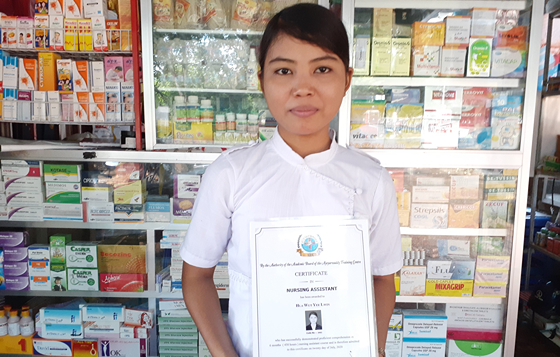
Ma Hla Wut Yee Lwin
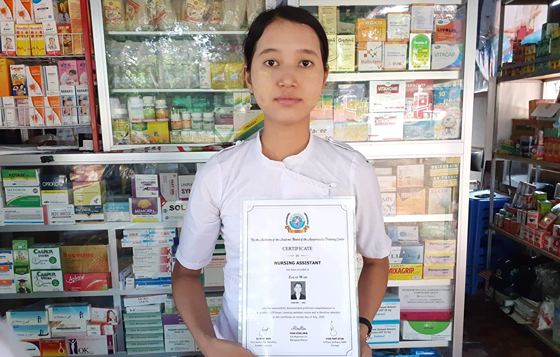
Ma Za Lat Wah
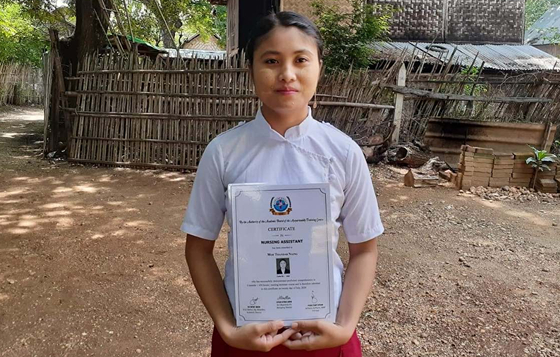
Ma Moe Thandar Naing
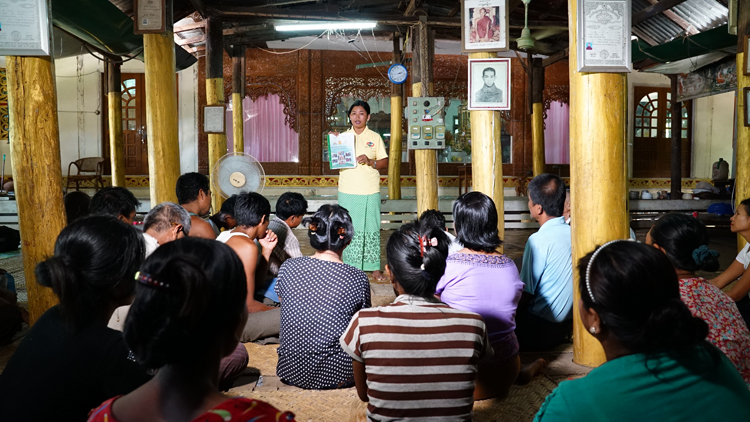
Promoting Leadership from within the Community - Giving a Voice to those who may feel they have none
Developing a plan for identifying local needs and resources can help businesses understand how to improve their communities in the most logical and efficient ways possible. Needs can be defined as the gap between what is and what should be, and can be experienced by an individual or an entire community. It can be as concrete as the need for safe drinking water or as abstract as improved community cohesiveness. Every individual is a potential community asset, and everyone has assets that can be used for community building.
Read morePromoting Leadership from within the Community - Giving a Voice to those who may feel they have none Developing a plan for identifying local needs and resources can help businesses understand how to improve their communities in the most logical and efficient ways possible. Needs can be defined as the gap between what is and what should be, and can be experienced by an individual or an entire community. It can be as concrete as the need for safe drinking water or as abstract as improved community cohesiveness. Every individual is a potential community asset, and everyone has assets that can be used for community building.
We may already know what the needs of the community are. Everyone could be aware, and there’s no doubt about it, but most of the time, the needs are not quite so clear. Does everyone feel the same way? Wouldn’t it be worth checking what other people think, just to clarify whether others share your point of view? Sometimes, what the community wants may not always be the same as what it needs.
Identifying needs and assets can be helpful to businesses at almost any point of initiative. An assessment is a great opportunity to use community-based participatory approaches, further involving community members and increasing community capacity. The assessment process benefits greatly when there’s full participation from community stakeholders. Their idea of priorities might be different from those of professionals, but shouldn’t be ignored.
Comprehensive community needs assessments take time, people and resources. A planning process will give community members the opportunity to voice their opinions, hopes, and fears about the community. Today’s businesses have learned the importance of involving the members of their communities in the planning of programs and of communicating with stakeholders regularly during the planning process. Community involvement during the needs assessment can create and maintain the support of the key community members which is necessary for successful programs.
At MPRL E&P, we have always conducted a community needs assessment prior to developing CSR work programs for the following fiscal year. A series of discussions have been made with village administrators, elders, village development committees and community-based volunteers to identify the important issues and needs for the community and what they think is needed – and we must do this genuinely, with a mind open to change.
MPRL E&P strategically invests in social programs that consider community needs and the country’s economic and social goals. Our community investment initiatives create real social impact as well as business benefits and are underpinned by the following key principles:
- Identify the social issues that are most relevant to the business and most pressing to the communities we work with
- Work in partnership with our communities leveraging our combined expertise for mutual benefit
- Plan and manage community investment using the most appropriate resources to deliver our CSR goals
- Inspire and engage our employees, business partners and suppliers to support our community programs
- Measure and evaluate the differences that our social investment has on the community and on the business, and
- Strive for continued improvement.
In addition to addressing community priorities where we conduct our business, we partner with governments and non-governmental organizations to help enhance the quality of life in the communities where we operate. We focus our efforts on our signature initiatives:
- Improving education,
- Improving community infrastructure;
- Providing improved access to safe drinking water, and
- Building community leadership (including but not limited to mentorship programs for community-based volunteers, equipping village leaders to create a change-capable culture, advancing economic opportunities for women etc.)
We concentrate on these areas because they help build a foundation for economic prosperity and human progress.
At MPRL E&P, we strongly believe that empowering people can help eradicate poverty because those who have been empowered will become self-reliant from their skills that they have learned, and they can have jobs which they will use to take care of their family. Empowering communities through education, information, and coaching, and amplifying the possibilities to get a job or create a small business, is the best way to achieve poverty eradication because empowered people are the actors of their own development.
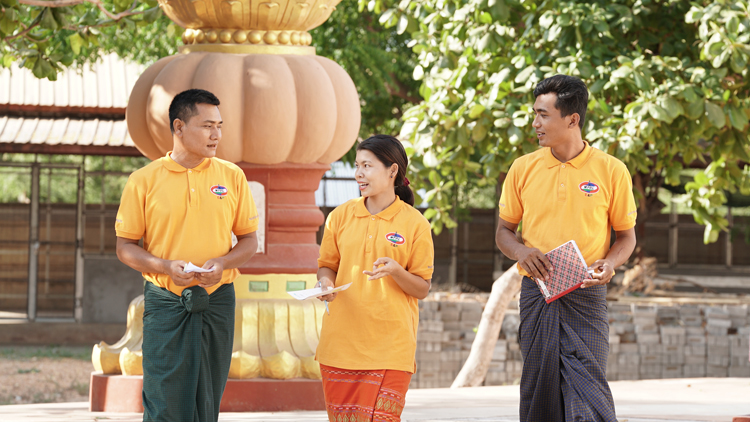
Community Volunteers Benefitted from Mentorship Programs
Mentorship is an essential component of professional development in business settings. Starting from July 2017, community volunteers in Mann Field have taken part in a mentorship program which, with a focus on the future, aims to strengthen broader skills for their personal and career development.
Read moreCommunity Volunteers Benefitted from Mentorship Programs Mentorship is an essential component of professional development in business settings. Starting from July 2017, community volunteers in Mann Field have taken part in a mentorship program which, with a focus on the future, aims to strengthen broader skills for their personal and career development.
Daw Lai Lai Khaing, CSR Field Support Staff, said, “Our mentorship program which takes in four or five community volunteers at a time have three key elements: improving the general performance of our community volunteers in CSR projects, counselling and sharing knowledge for enhancing their morale, problem-solving skills and discovering their hidden talents. We hope that they will be more confident to participate in problem solving, and to develop strong communication skills in dealing with the communities, in regards to strengthening the engagement mechanisms and delivery of CSR projects in the future.”
Ko Aung Tay Zar, a Community Volunteer from Lat Pan Taw Village said, “I have learned that in carrying out public projects, communication skills are really important. Effective communication skills will enable us to complete our projects in a timely manner, to solve problems efficiently and to implement projects that are sustainable successfully. I used to be a blunt speaker – I just said what I thought without thinking carefully first. As a result, problems arose when I dealt with village authorities. Now thanks to the communication skills I have developed through this mentorship program, I have improved my relationship with village authorities and this helps with implementation of projects. I used to show very few initiative too – I did things only when there was an instruction. Now this has changed too. I am very thankful to have participated in this mentorship program which really helped me improve my overall performance.”
Ma Kyi Kyi Myaing is another community volunteer from Kyar Kan Village who has participated in the mentorship program and thinks the program is very helpful. “It opens my mind, with new knowledge and understanding on what I am capable of. I have improved in terms of communication, relationship and decision-making. I have more confidence in contributing to village development and managing my own business. I now have a better relationships with community authorities and extended my circle of friends and acquaintances. This in turns helped me start my own tailoring business. I used to have to work at a tailoring shop in Minbu but no longer. Therefore, because of the mentorship program, I was able to accomplish a lot for both my volunteering job and private life.”
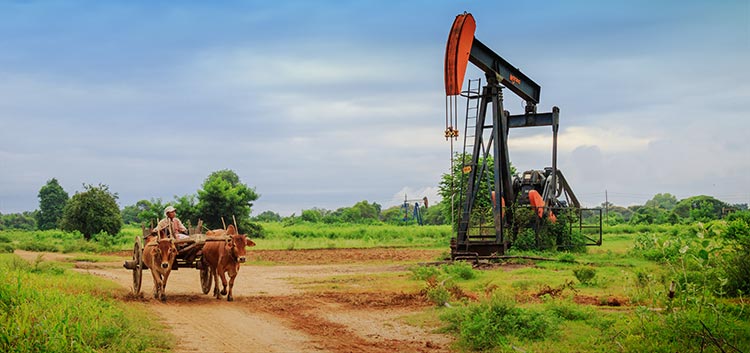
Communities Lead Village Development in Mann Field
Empowering communities to acquire ownership
Read moreCommunities Lead Village Development in Mann Field Empowering communities to acquire ownership
MPRL E&P started implementing philanthropic Corporate Social Responsibility initiatives in Mann field since its assumption of responsibility in 1999, concentrating on the four areas: strengthening access to education, improving access to basic healthcare, water and sanitation, socio-cultural initiatives, and disaster response and management. It was in 2012 when the Company began to further develop its CSR thinking from a philanthropic one to a more strategic focus, which centers on engaging and supporting the development of local communities.
As a result, the Company’s CSR team has initiated engagement with 14 communities living in the project area in order to directly address their needs and concerns regarding community development and impacts of the business operations, with a goal of contributing to the sustainable development and livelihoods of the communities through active engagement and regular dialogue.
One of the successful engagement methods is the establishment of Village Development Committees in each community. U Kan Chun, a 48-year-old farmer, Village Administrator and Village Development Committee member from Kyar Kan Village, one of the surrounding villages in Mann field, explained how the Committee was ‘formally’ formed in November 2015.
“The CSR team from the Company came to meet with the village administrators of the 14 villages in Mann field and discussed how they could support us based on our needs and focus. Although there used to be some such committee for electricity supply in my community, for example, the Village Development Committee was firmly established through the partnership between village elders, youth groups, village administrators, MOGE’s and MPRL E&P’s CSR teams to implement the community investment initiatives.”
It has been aimed to be more than engagement: the community members are empowered to effectively acquire ownership of the community investment projects reflecting and meeting their specific needs, from planning, designing, to implementing and managing the projects through the support of MPRL E&P’s CSR team. Another 63-year-old Village Committee Member from Ywar Thar Village of which its own Committee was formed in September 2014 contemplated over the knowledge transfer sessions and capacity building trainings by the CSR team and how they have contributed to the formation of knowledge, skills, attitudes and shared values among community members.
“The trainings were provided for collecting and maintaining data and funds for the development projects as well as managing the processes and procedures. Basically, they included project management training, facilitation training and team building training. This is to help us do our work better, in collaboration with MOGE and the Company.”
